I’ve always been quietly fascinated by women who dress with a certain kind of elegance.
Not the loud, attention-seeking kind. The other kind—the ones who move through a room like they’ve got nothing to prove. There’s something about the way they wear their clothes—simple, clean, and always just right. It’s effortless, but you can tell it’s thoughtful.
I didn’t know what to call it at first. Then I heard about old money style—a way of dressing that’s less about trends and more about timelessness.
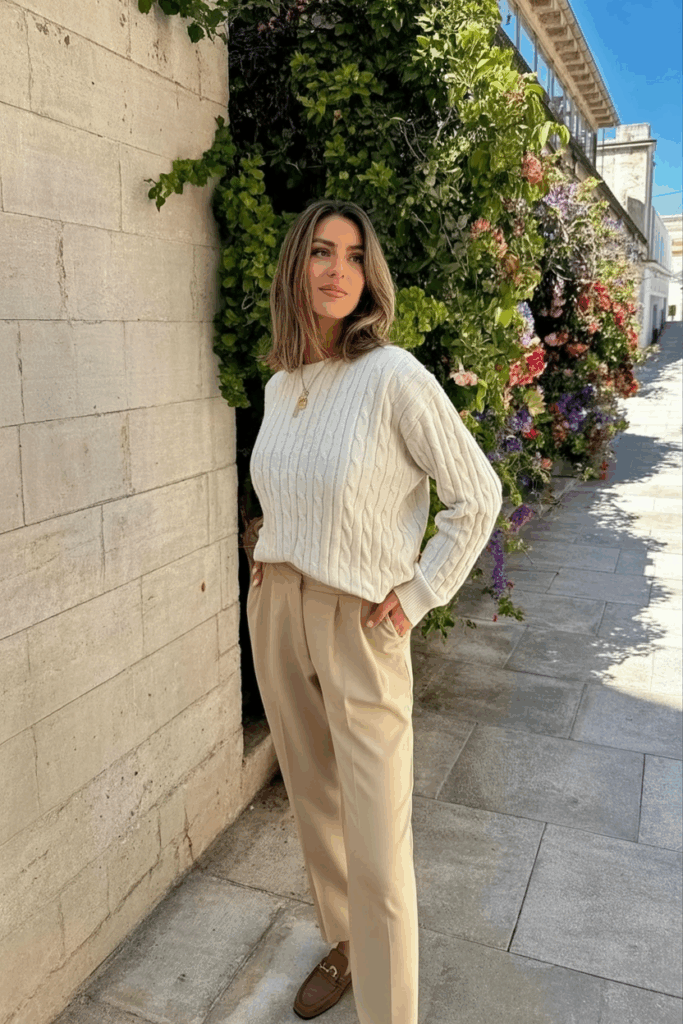
It’s not about chasing the next thing. It’s about having pieces that stay with you—season after season.
So I started paying attention. What are they wearing? Why does it work? What’s the difference between ‘put together’ and ‘truly timeless’?
I put everything I’ve noticed into this guide. If you’re curious about dressing with that quiet kind of confidence, here’s what I’ve found.
Let’s take a look.
1. The Foundation of the Look: Timeless Staples
The old money wardrobe begins with a solid base of well-made, versatile staples. These are pieces that never fall out of fashion—structured, seasonless, and quietly luxurious.
Key staples include:
- Crisp white button-down shirts, made of cotton poplin or silk, are wardrobe cornerstones. They can be worn tucked into high-waisted trousers, layered beneath sweaters, or styled simply with elegant accessories.
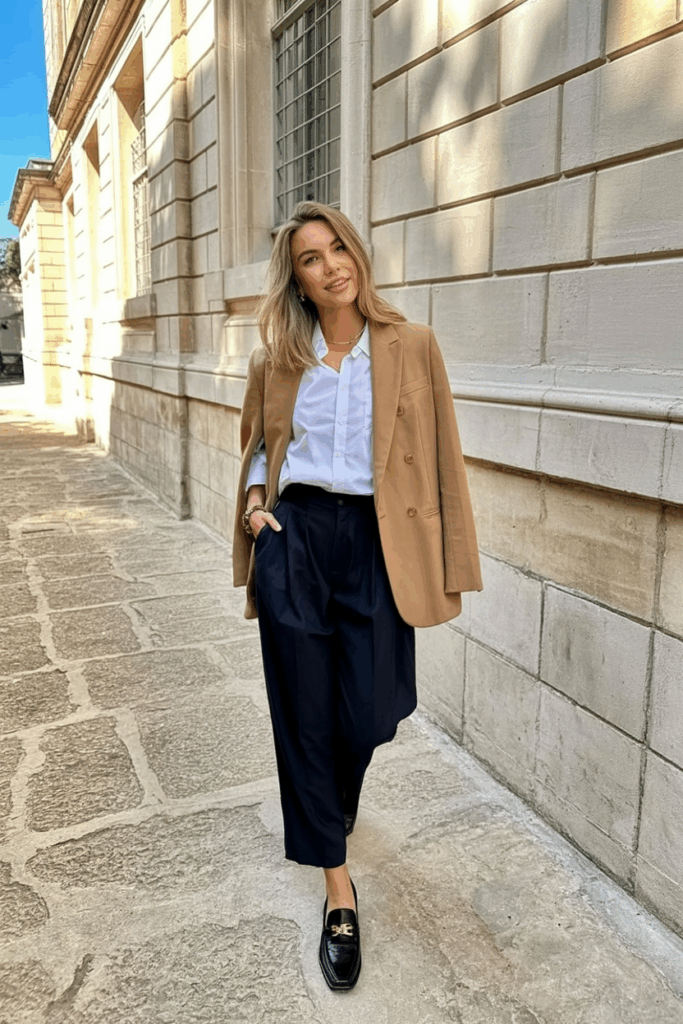
- Tailored high-waisted trousers—preferably pleated or straight-legged—look effortlessly polished in classic colors like camel, ivory, navy, or black.
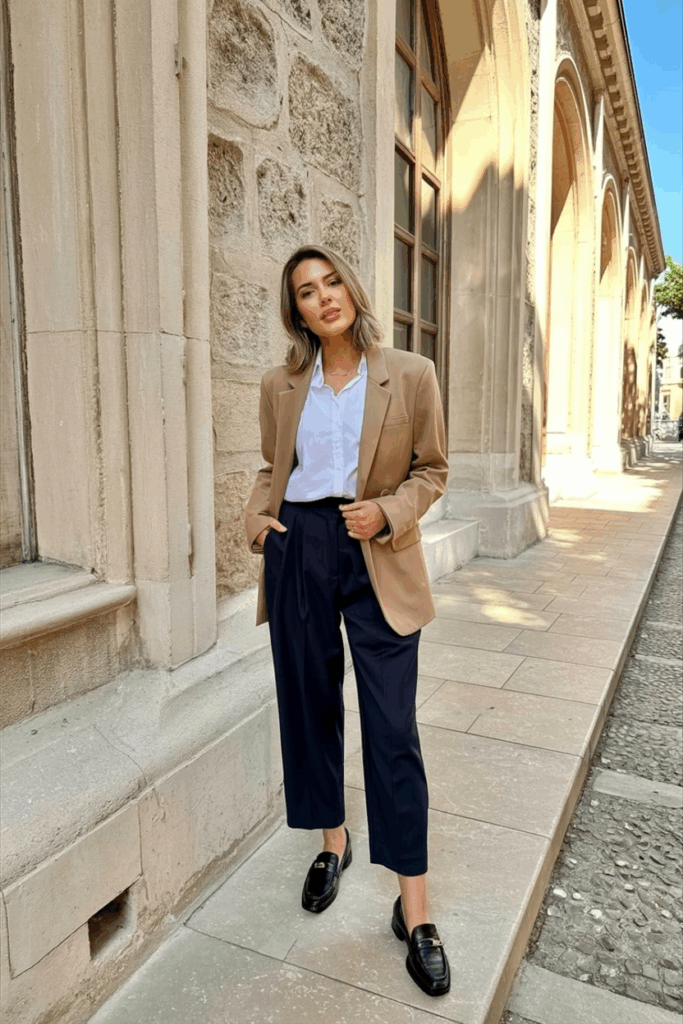
- Soft cashmere sweaters, often draped over the shoulders or layered for cool weather, bring both comfort and grace.
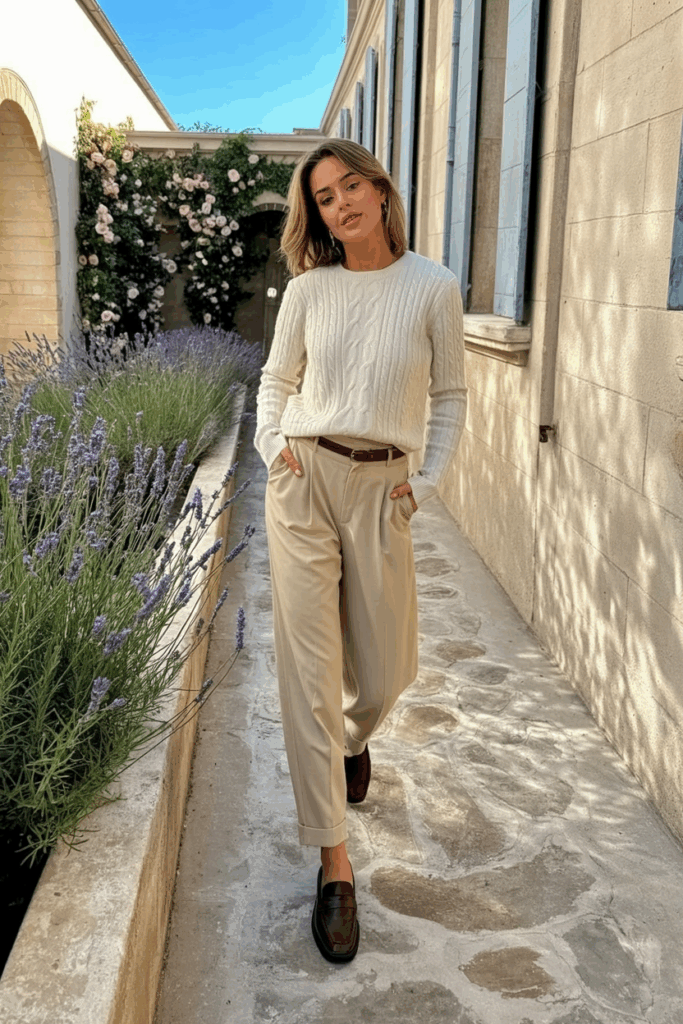
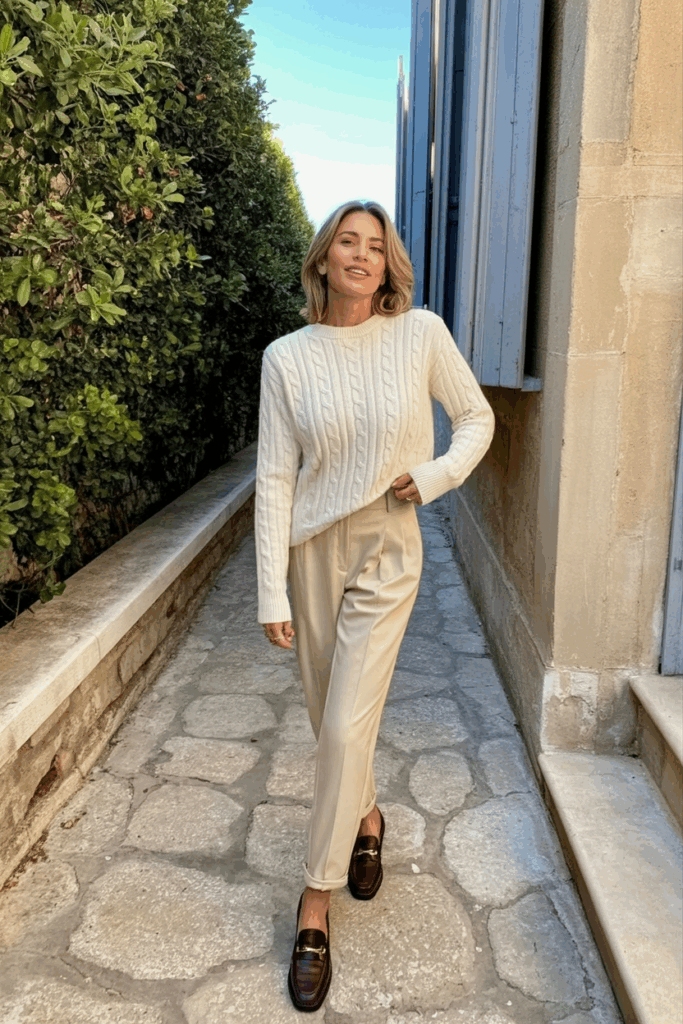
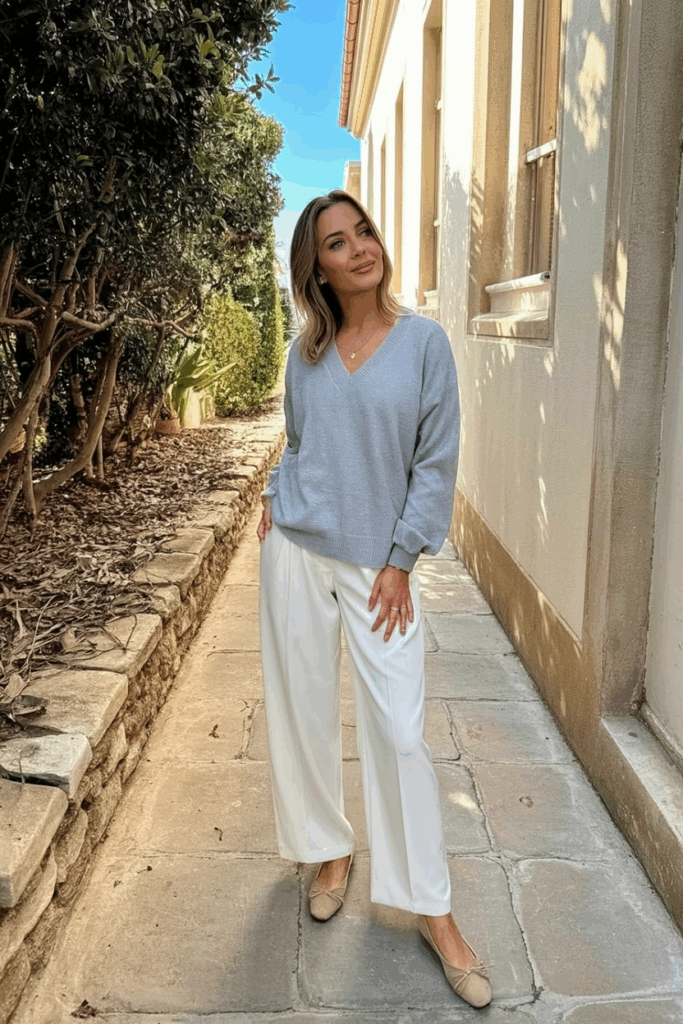
- A structured wool or linen blazer, which instantly elevates any outfit, from jeans to midi skirts.
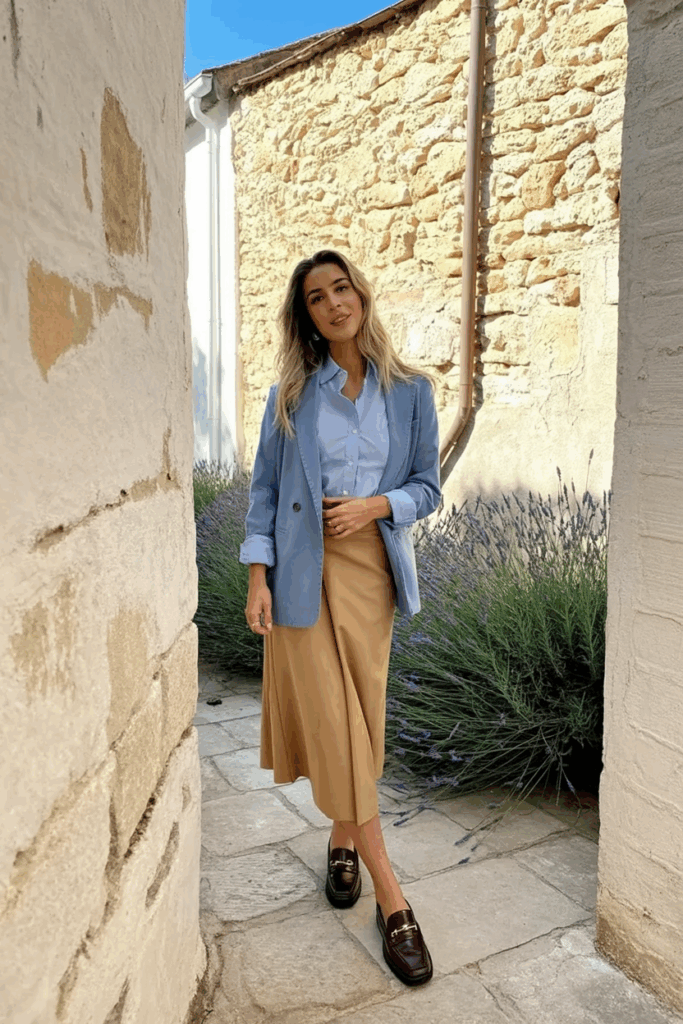
- Knee-length or midi A-line skirts, which offer femininity and a sense of ease without appearing overdone.
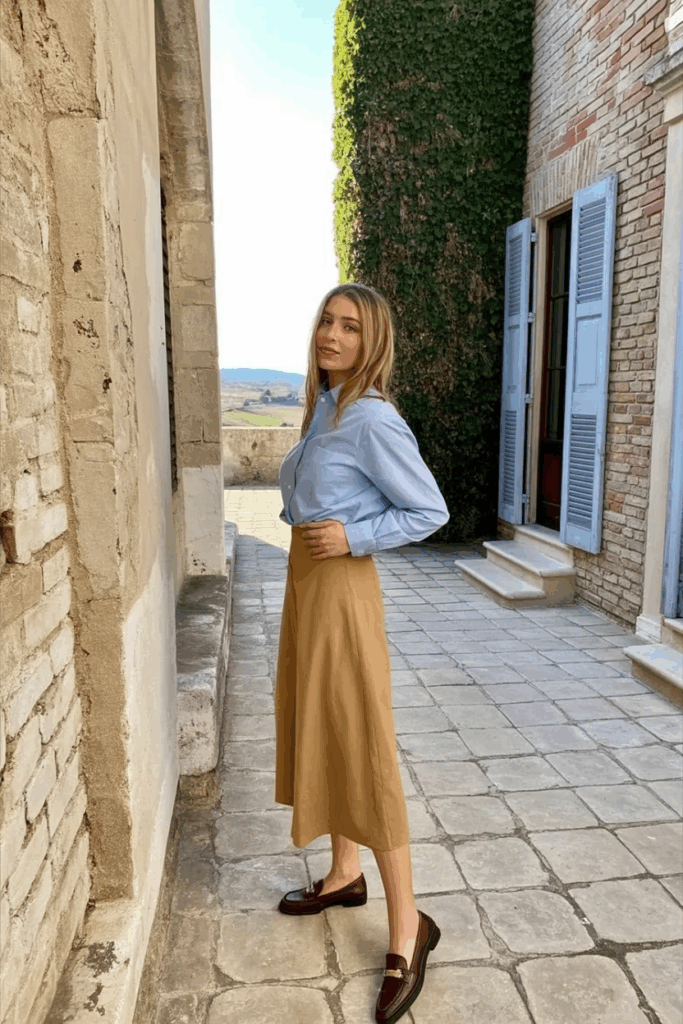
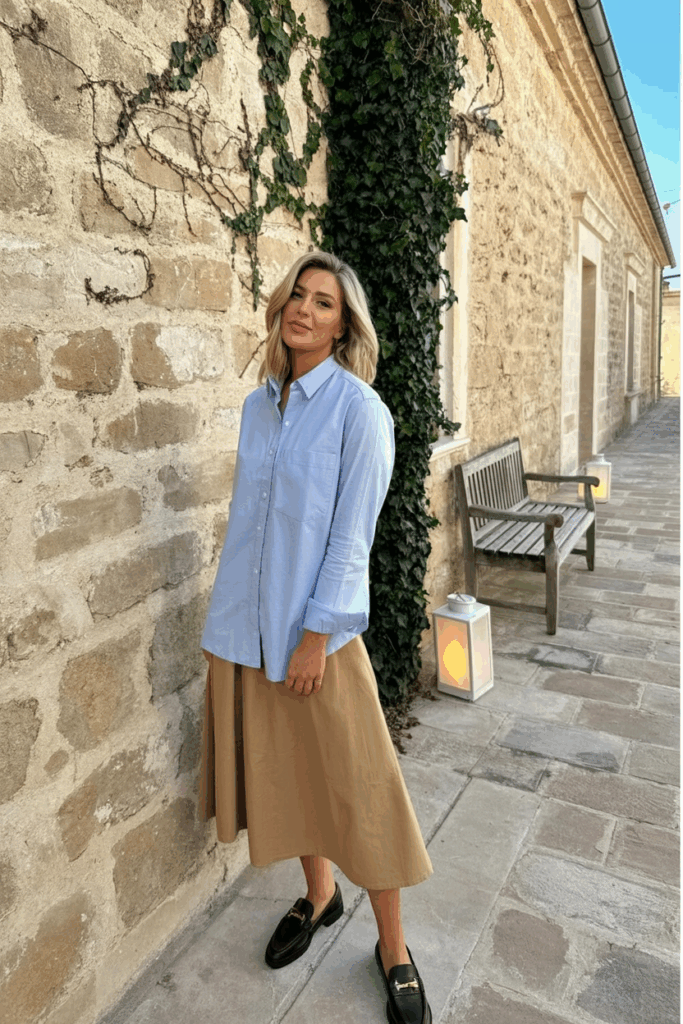
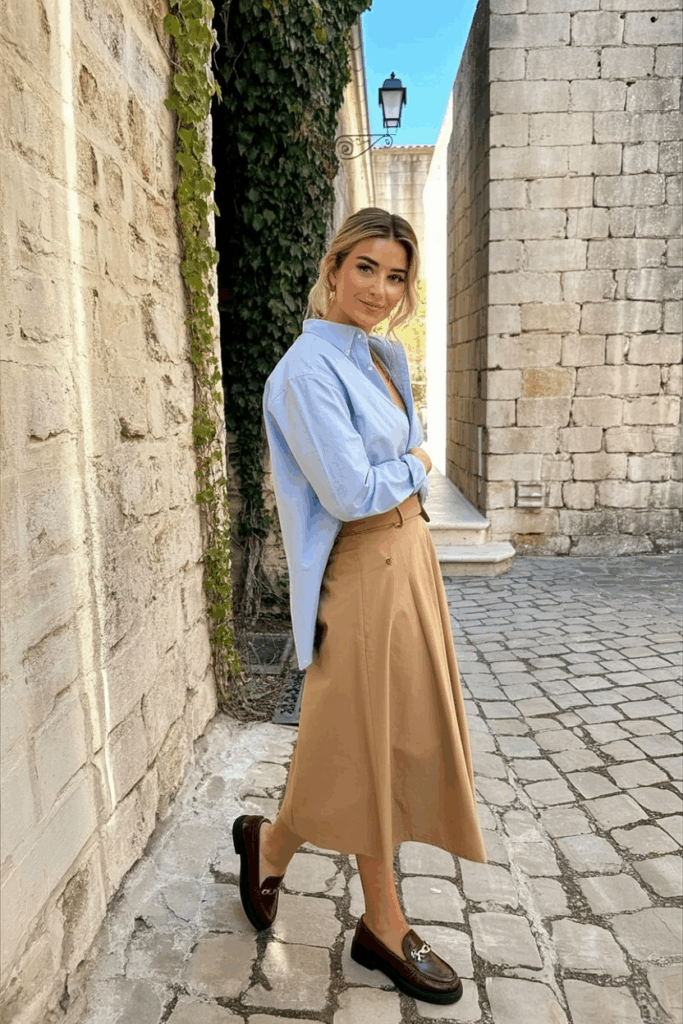
Each item is chosen with care—not just for style, but for how it fits into a long-term vision of dressing.
2. The Color Palette: Understated and Enduring
Color choices in this aesthetic are subtle, never showy. The palette is purposefully muted, which enhances the sense of refinement and longevity.
Stick to:
- Classic neutrals like cream, ivory, black, navy, and camel that offer versatility and polish.

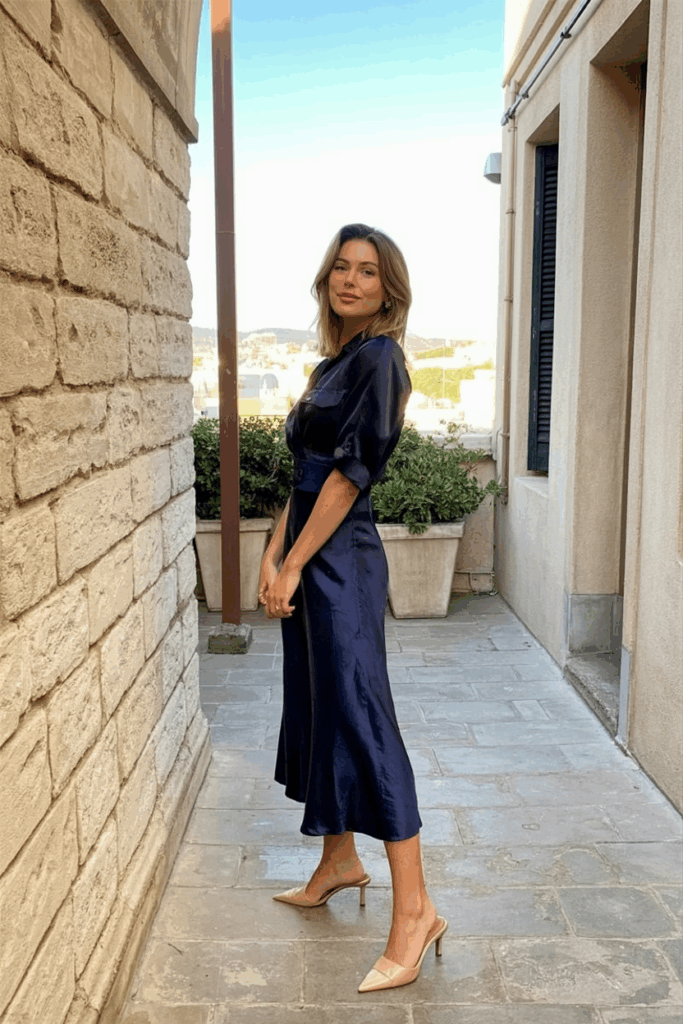
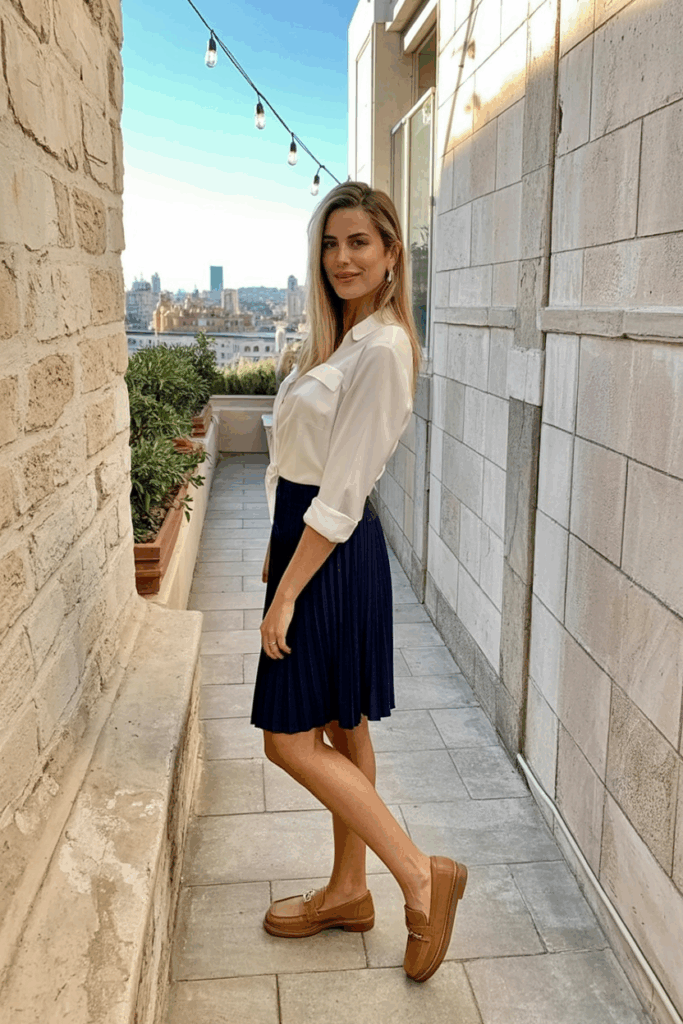
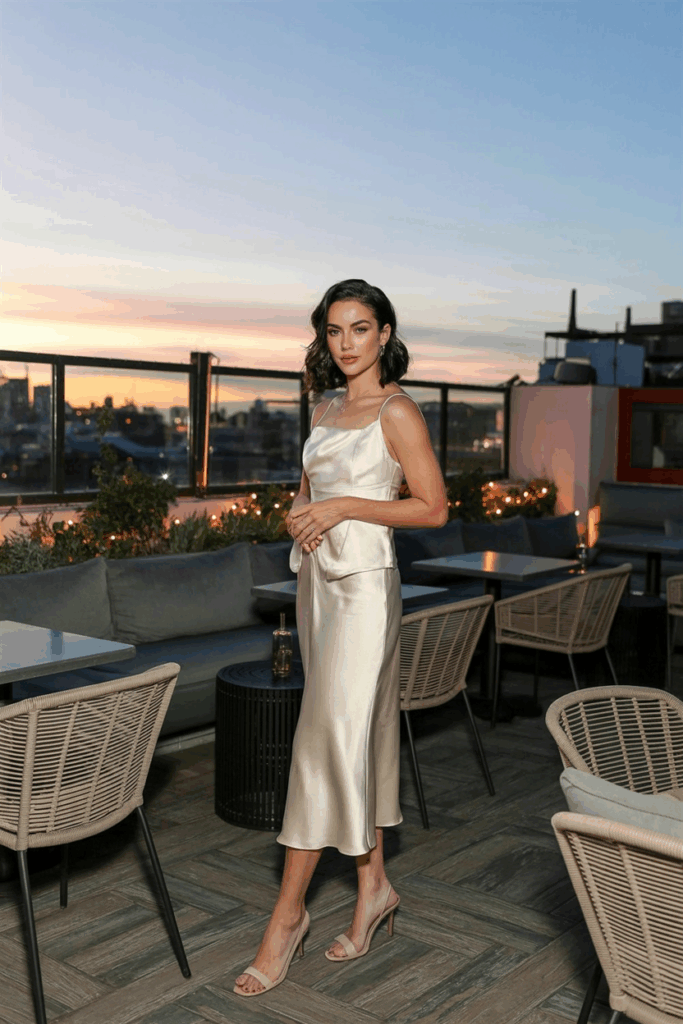
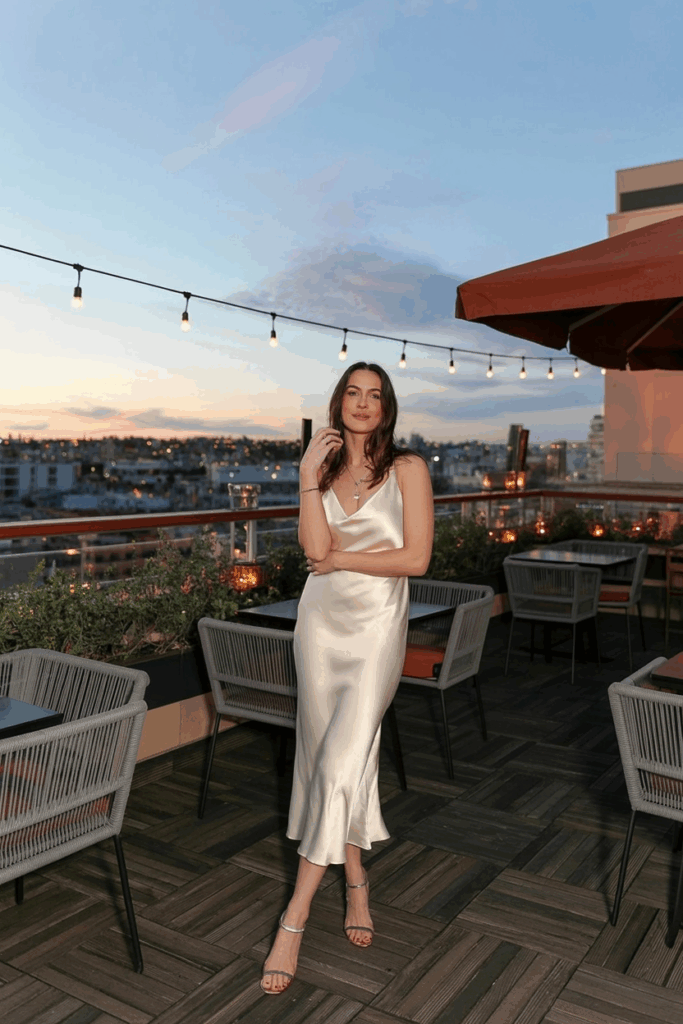
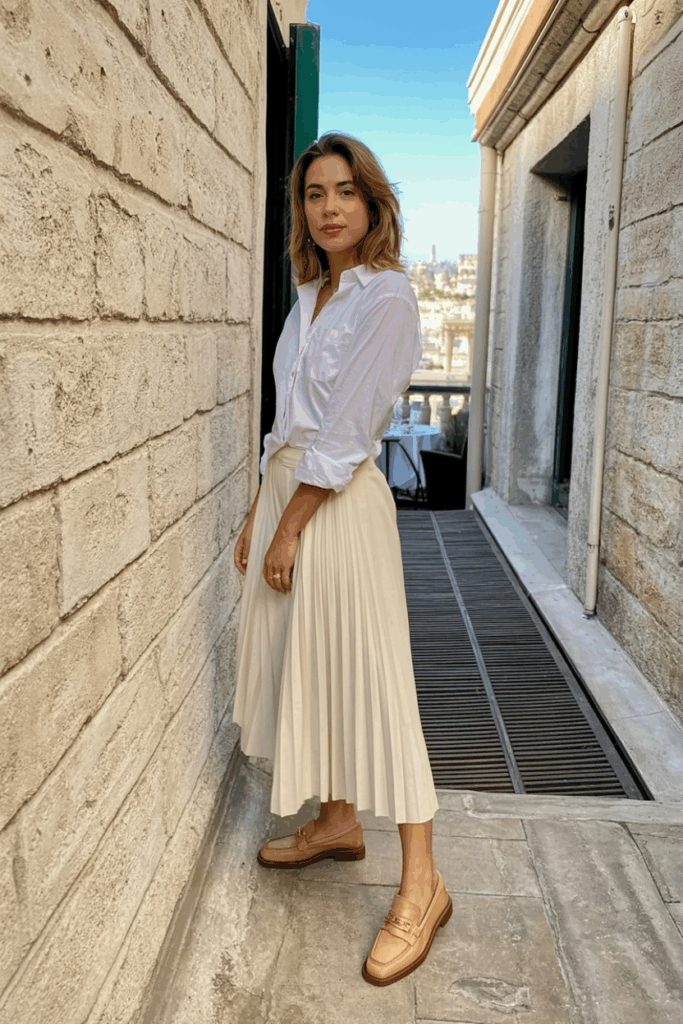
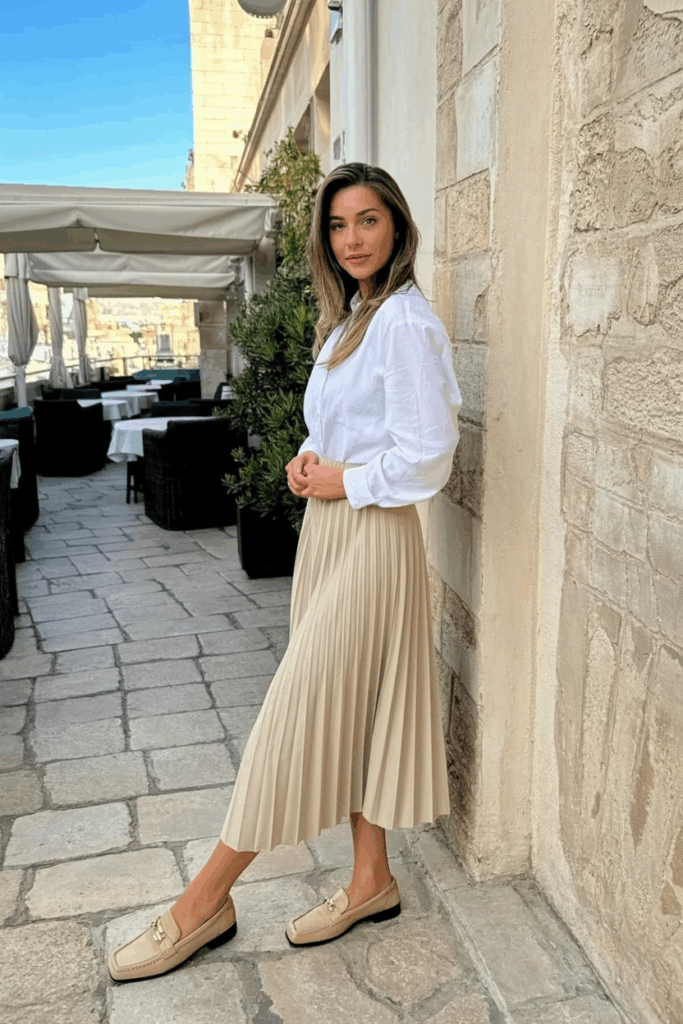
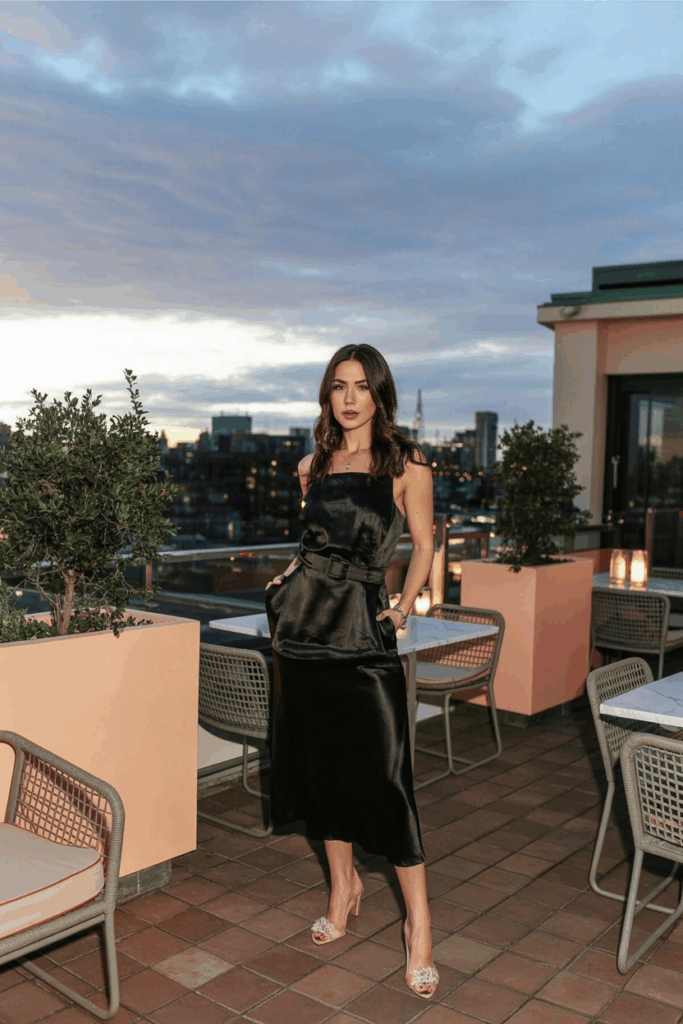
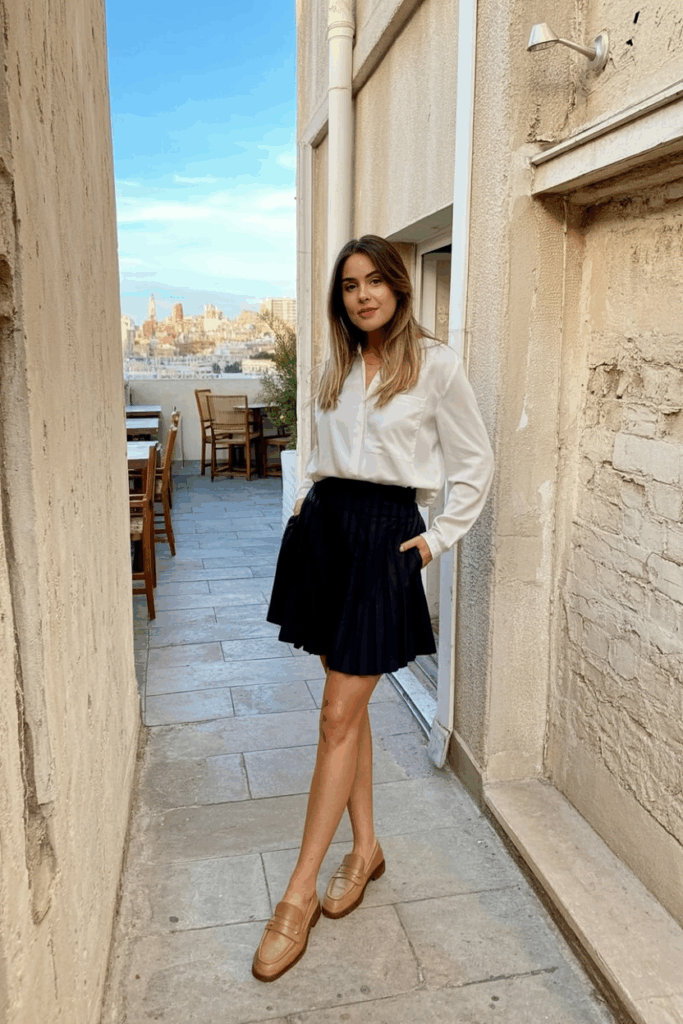
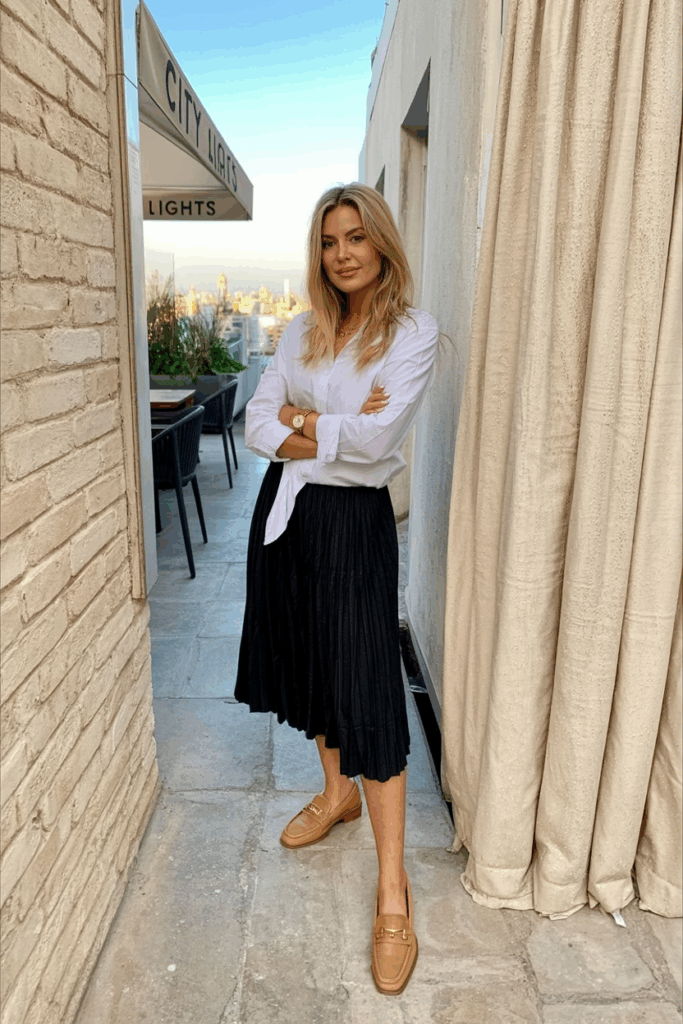
- Rich earth tones such as sage green, chocolate brown, and dusty olive, which add depth without demanding attention.
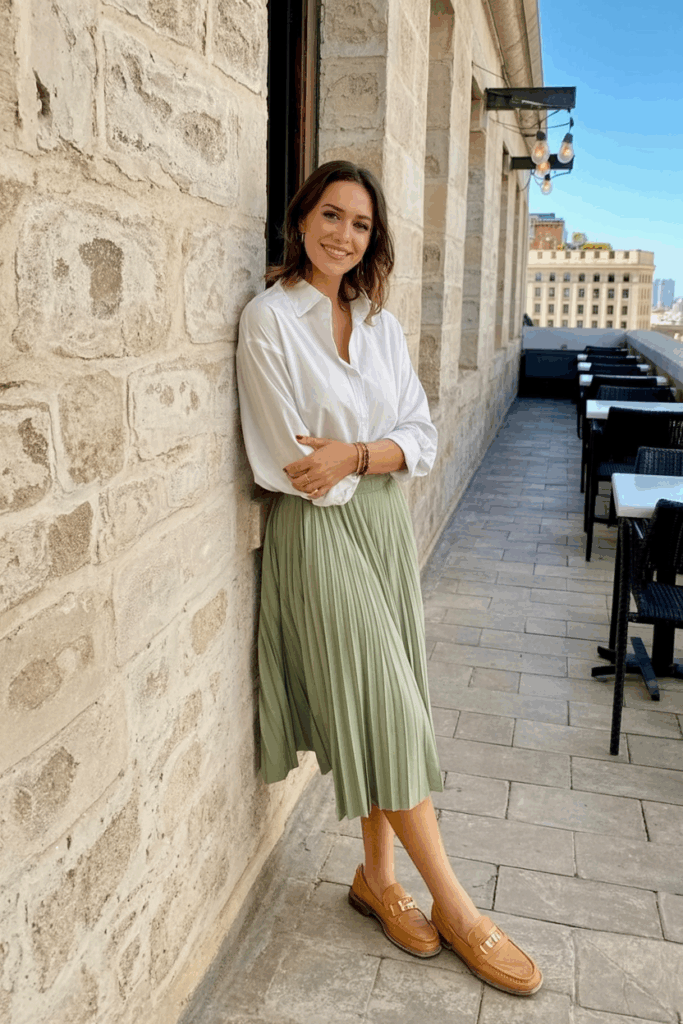
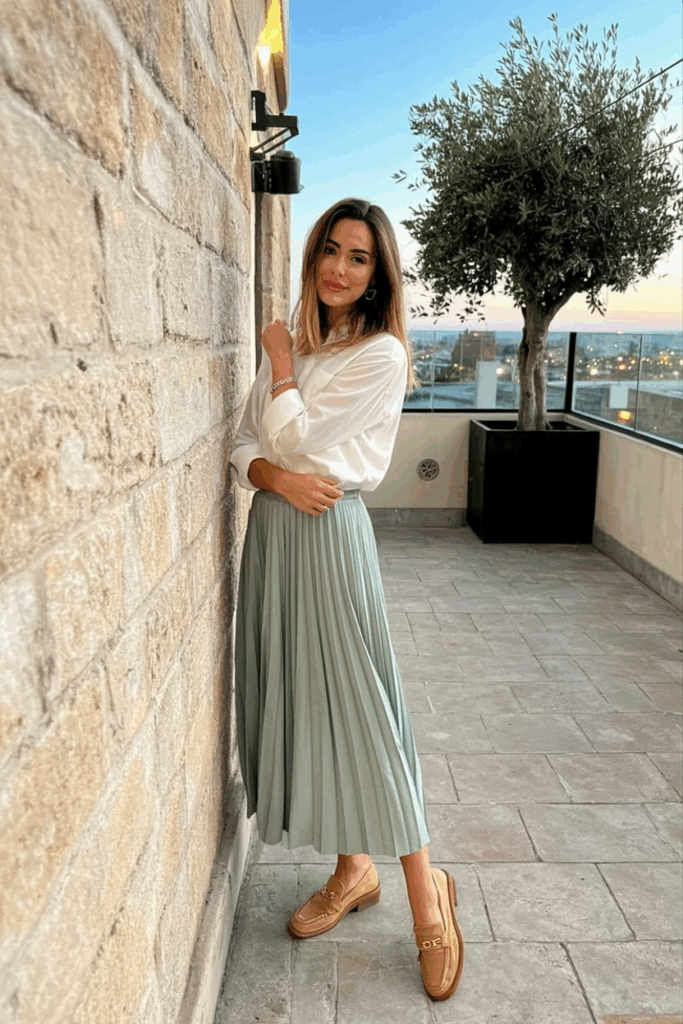
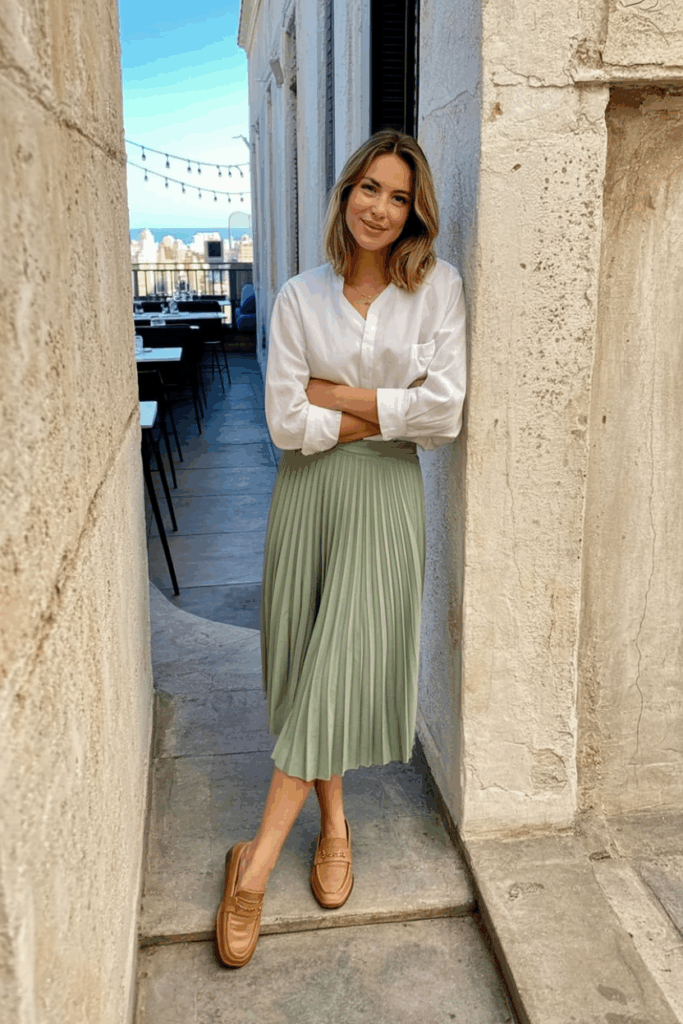
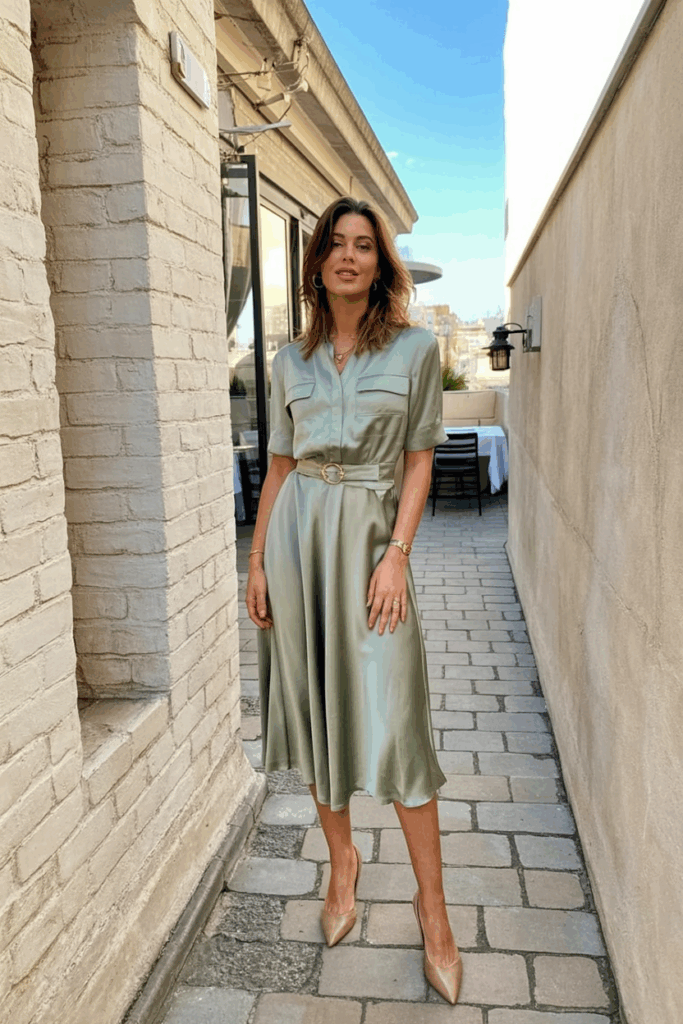
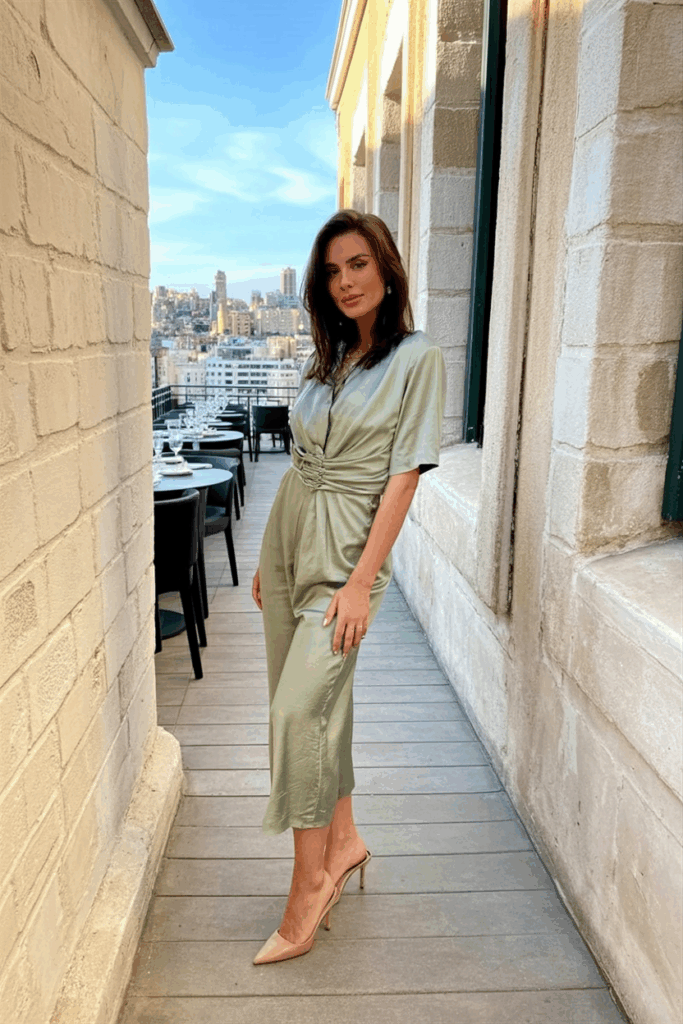
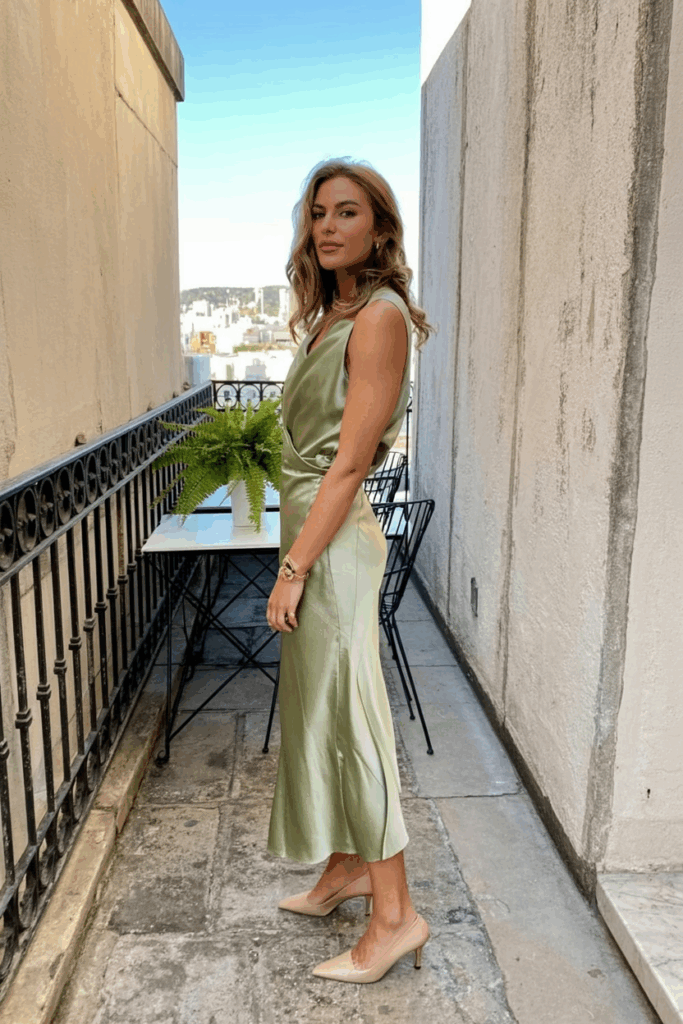
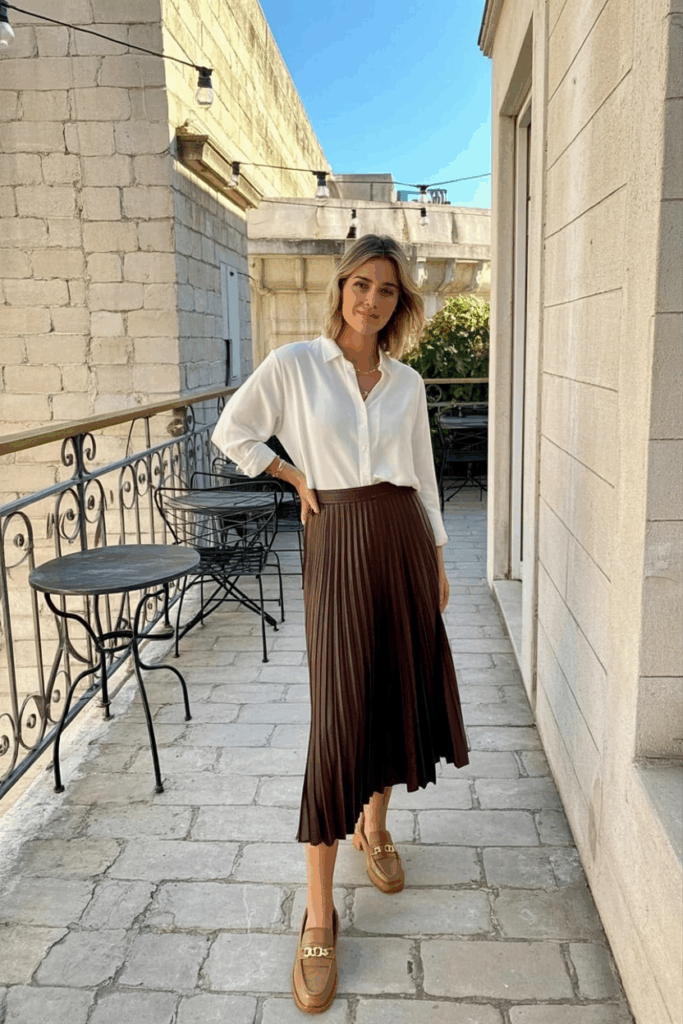
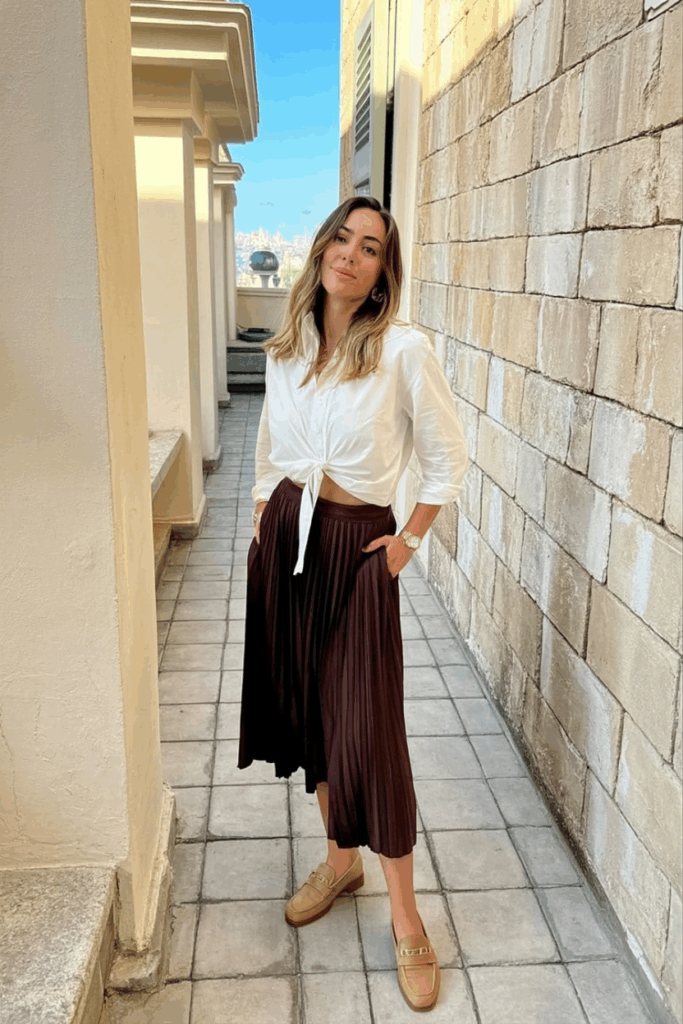
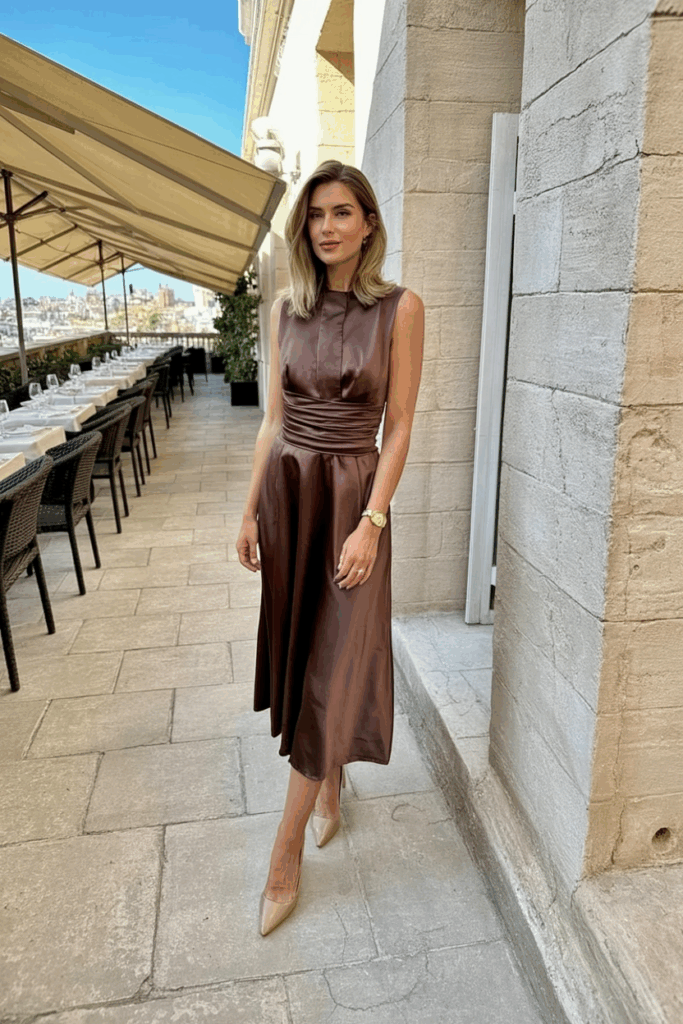
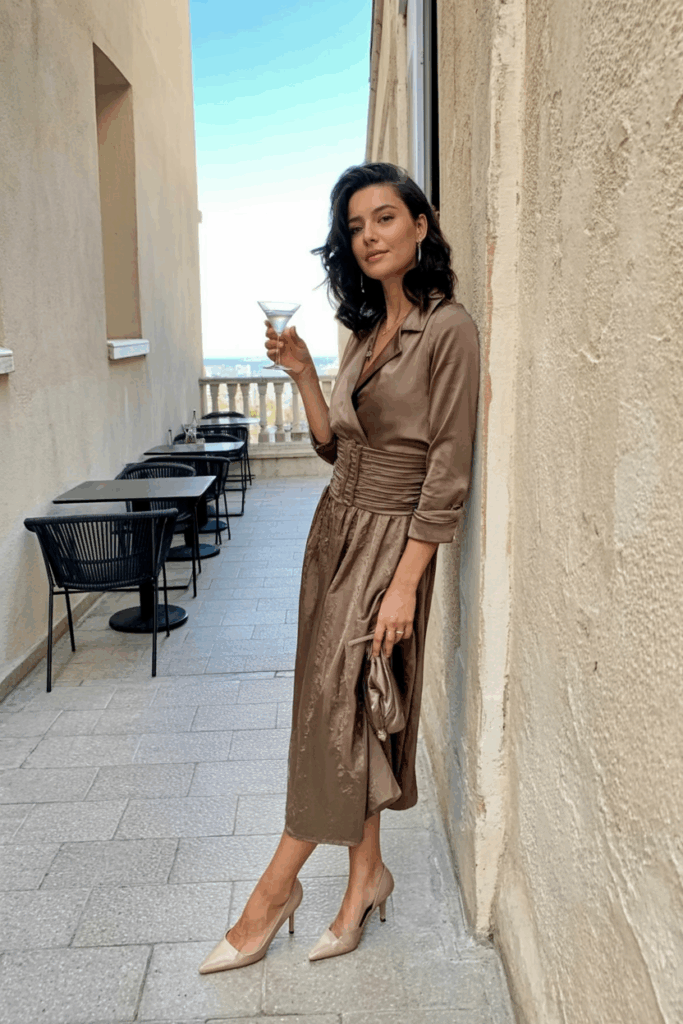
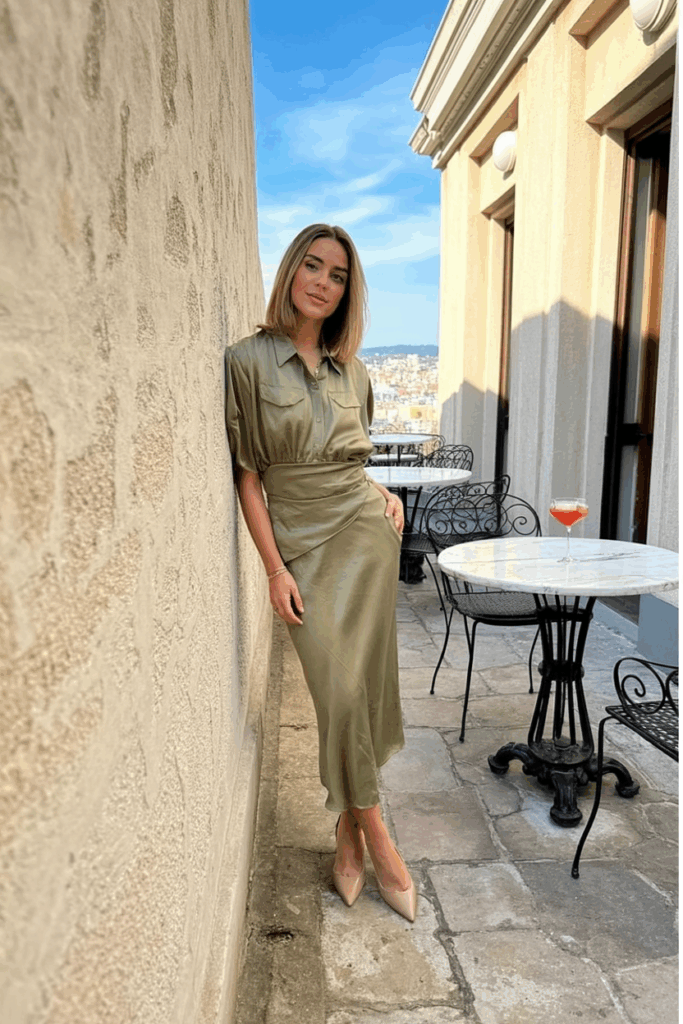
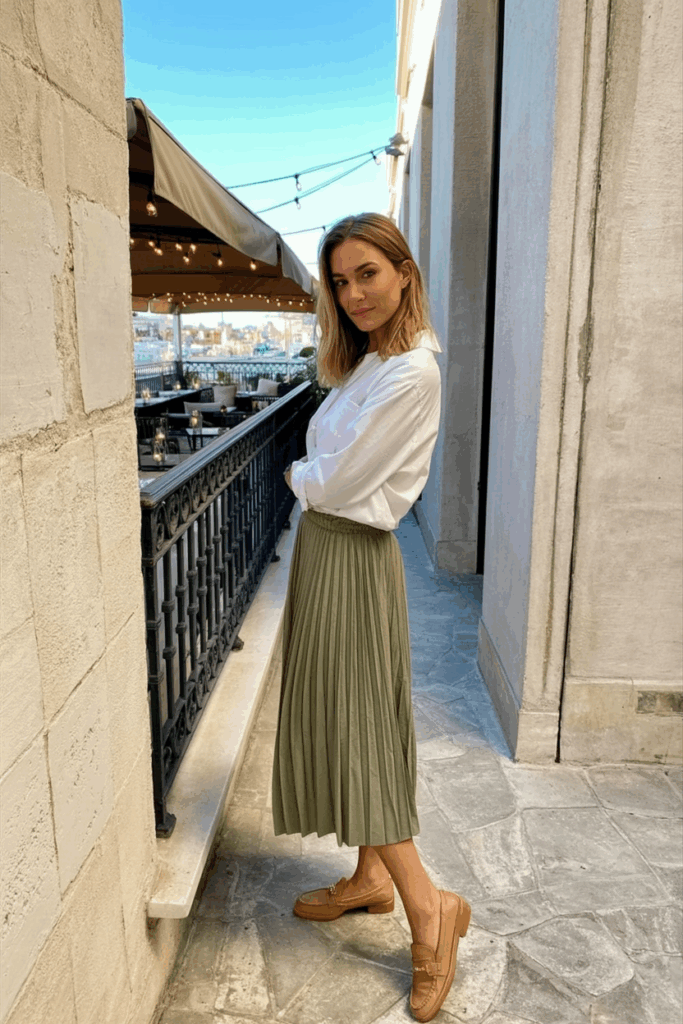
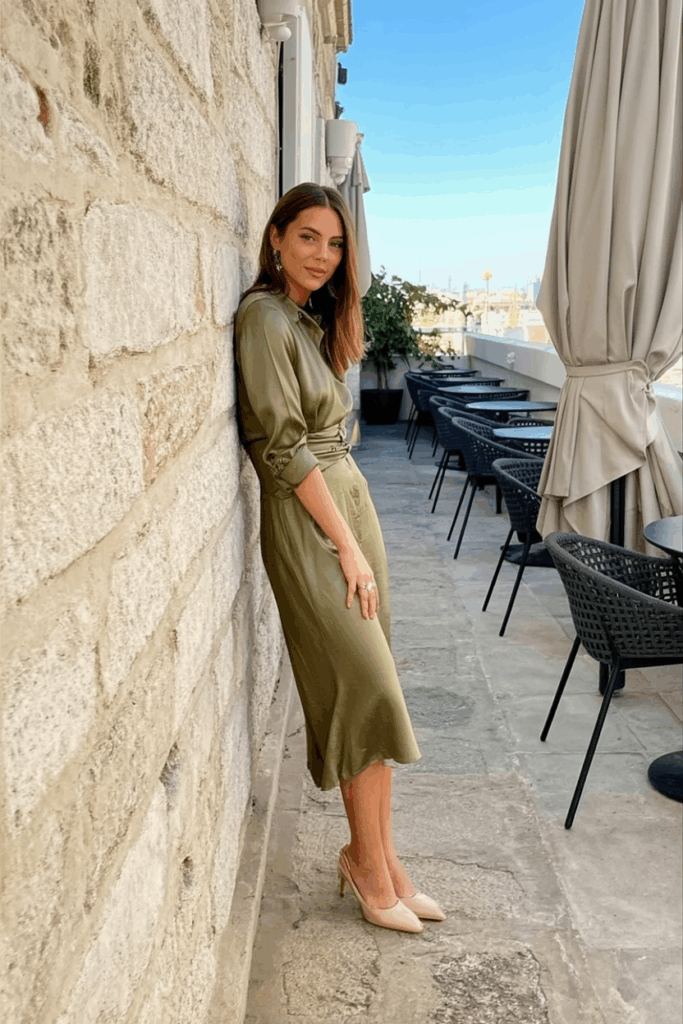
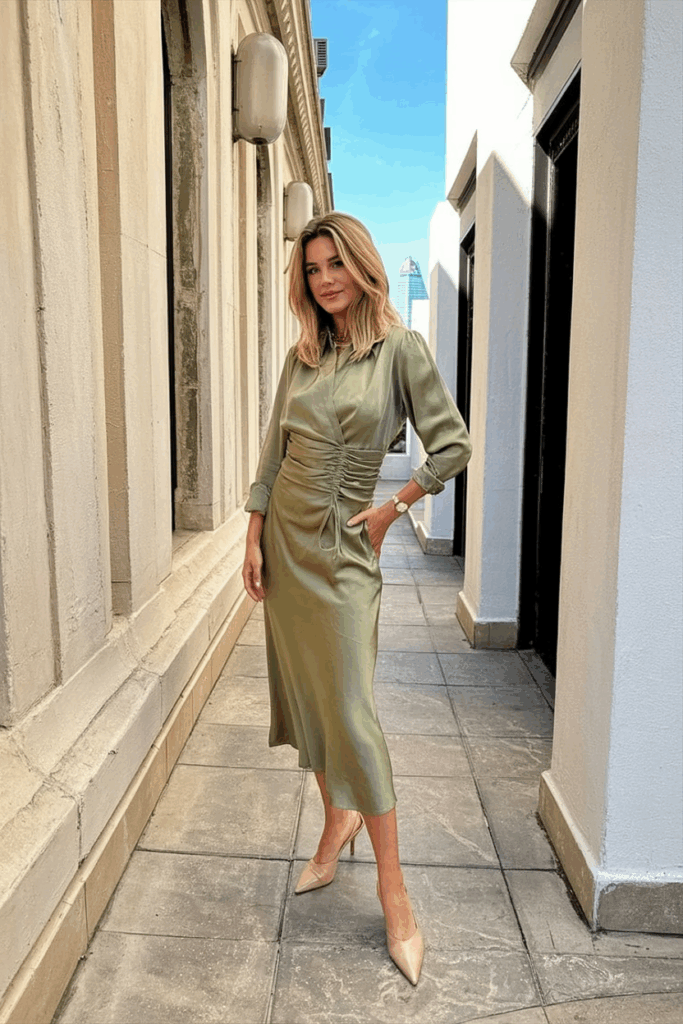
- Soft pastels—powder blue, blush, and muted lavender—used sparingly for a touch of charm.
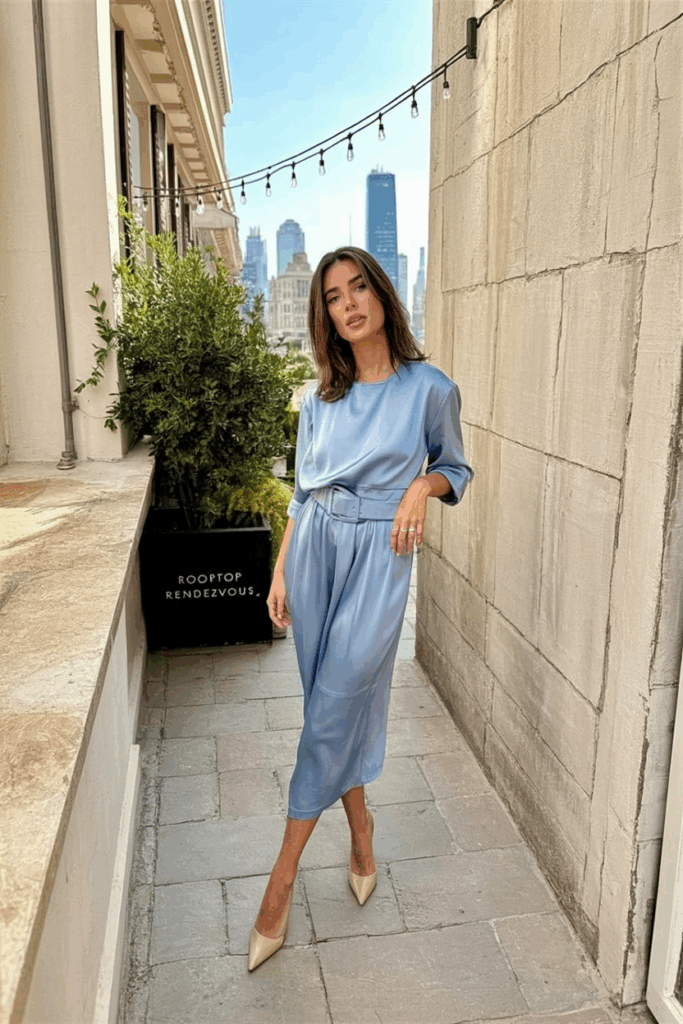
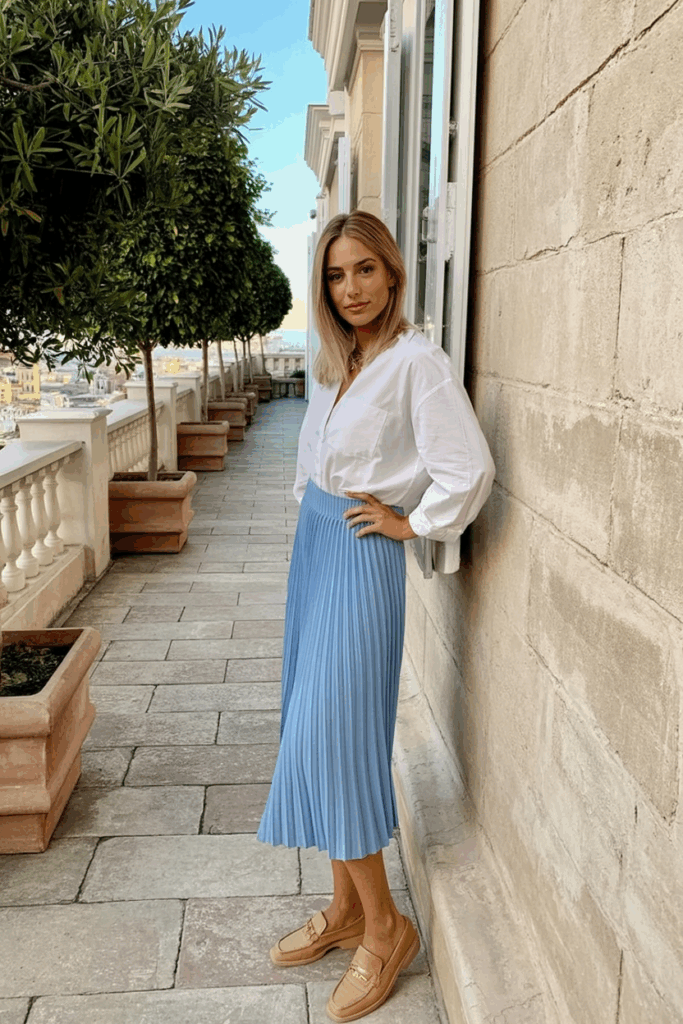
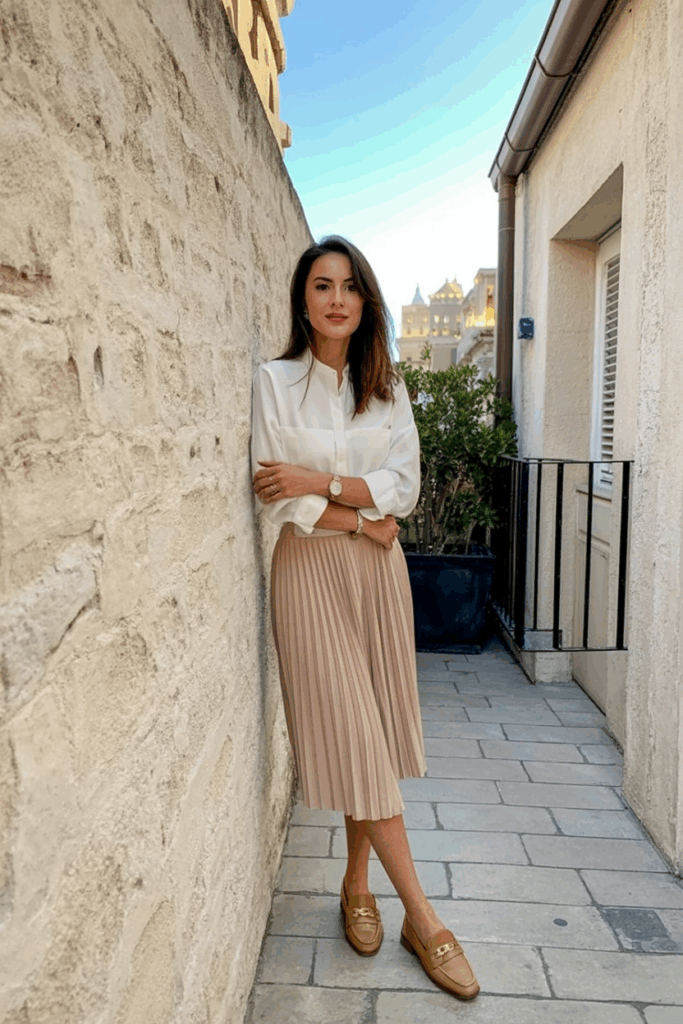
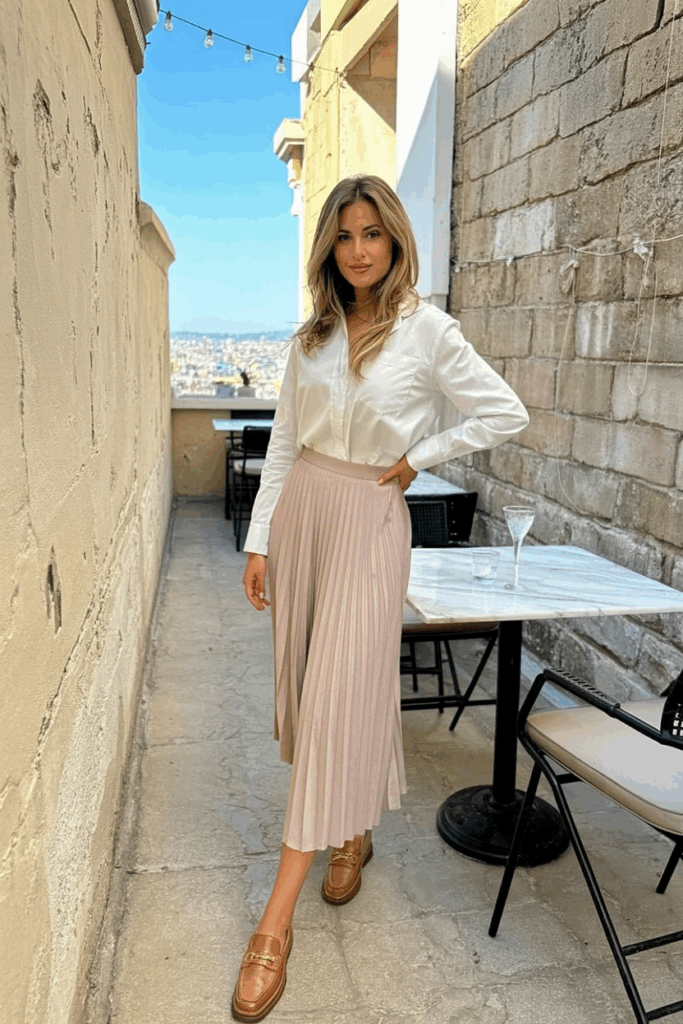
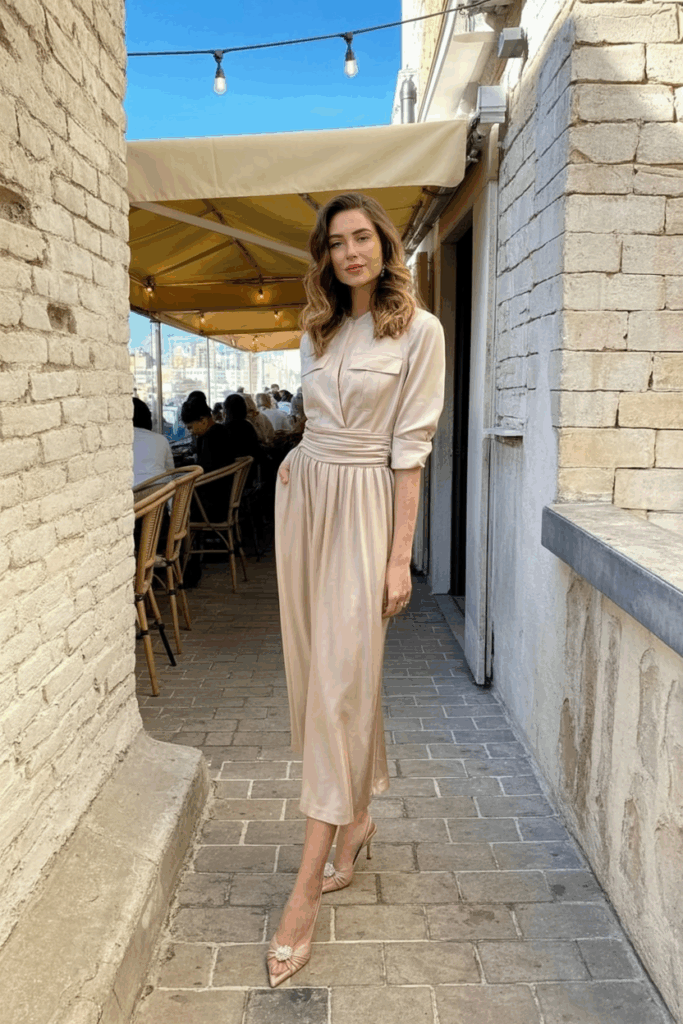
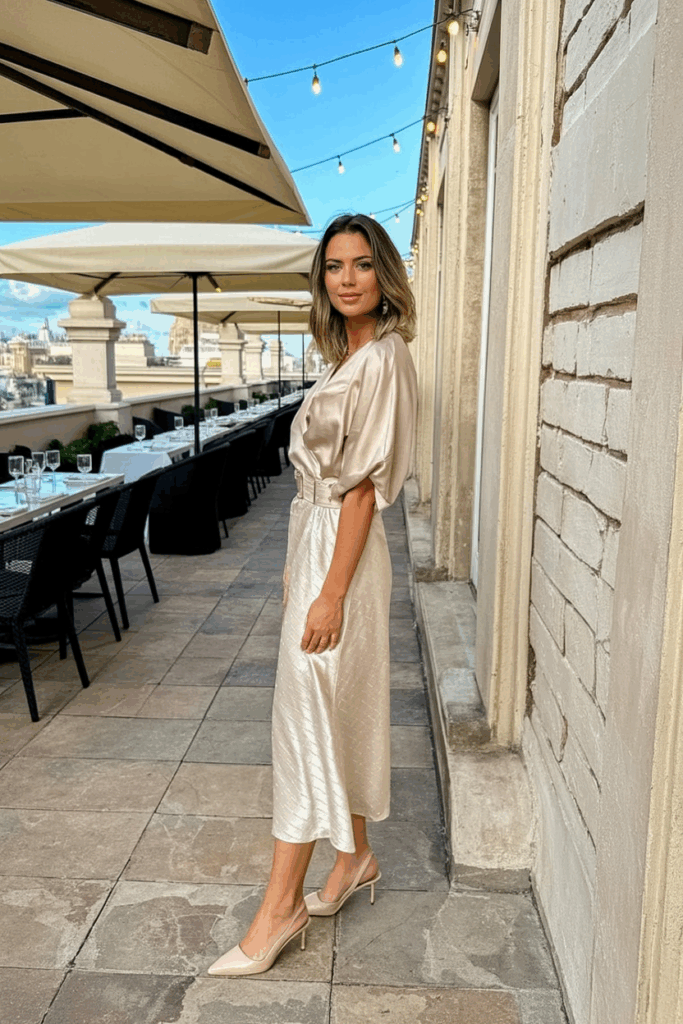
These hues don’t fade into the background—they set a calming, composed tone that makes the wearer feel grounded.
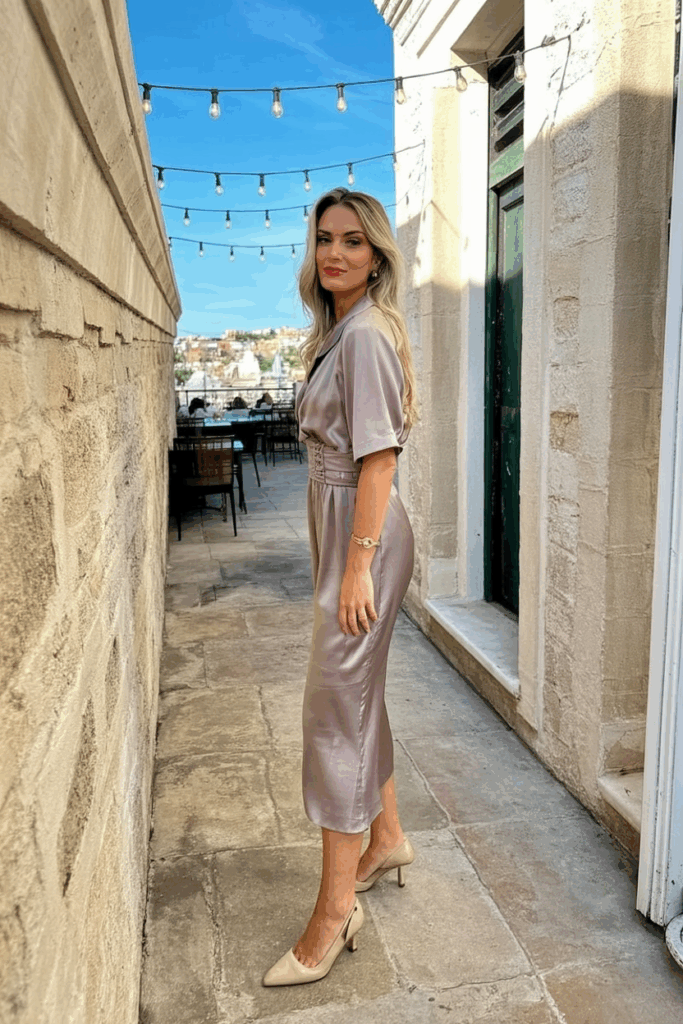
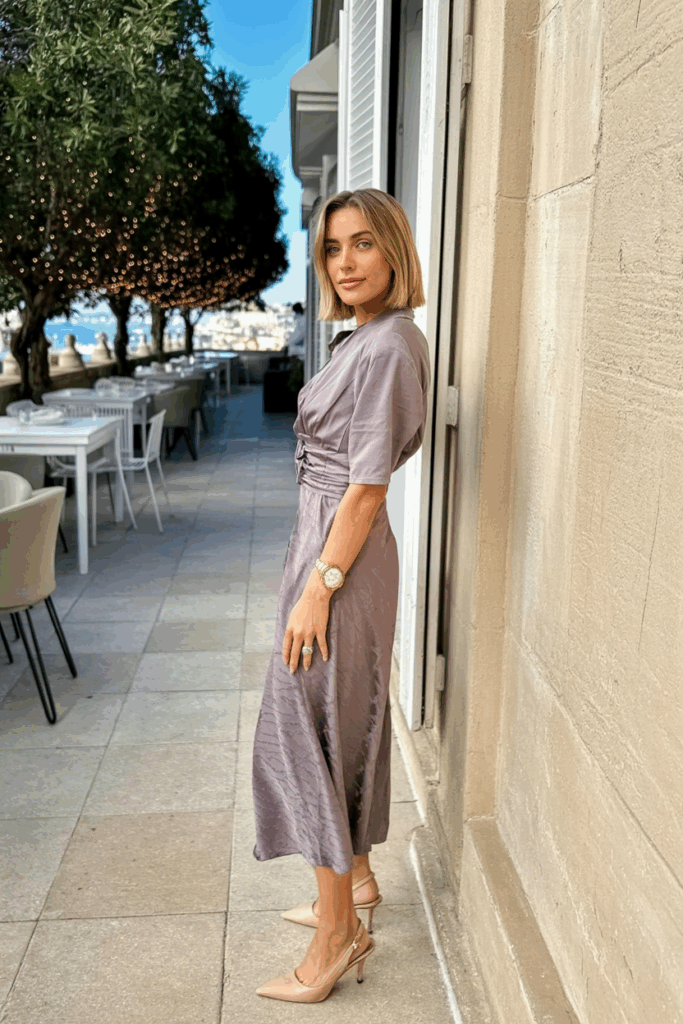
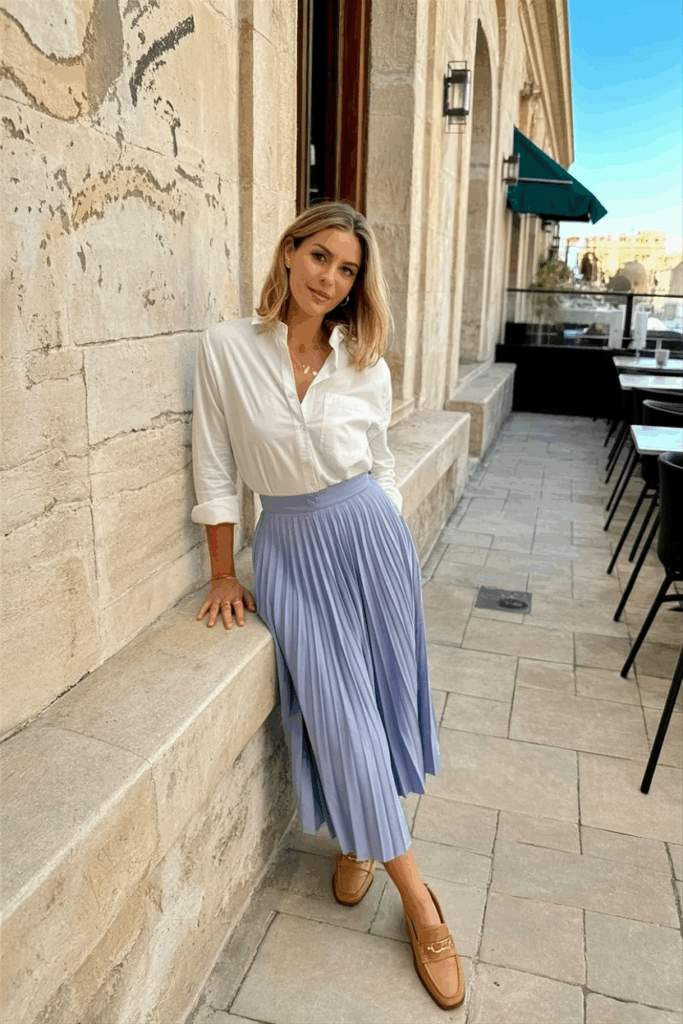
3. Fabrics That Whisper Wealth
What truly sets the old money look apart is the fabric. Materials are chosen for their texture, durability, and how they feel against the skin—not for flash or trend.
Prioritize:
- Wool, cashmere, and alpaca for outerwear and cold-weather pieces—they offer warmth with a refined finish.
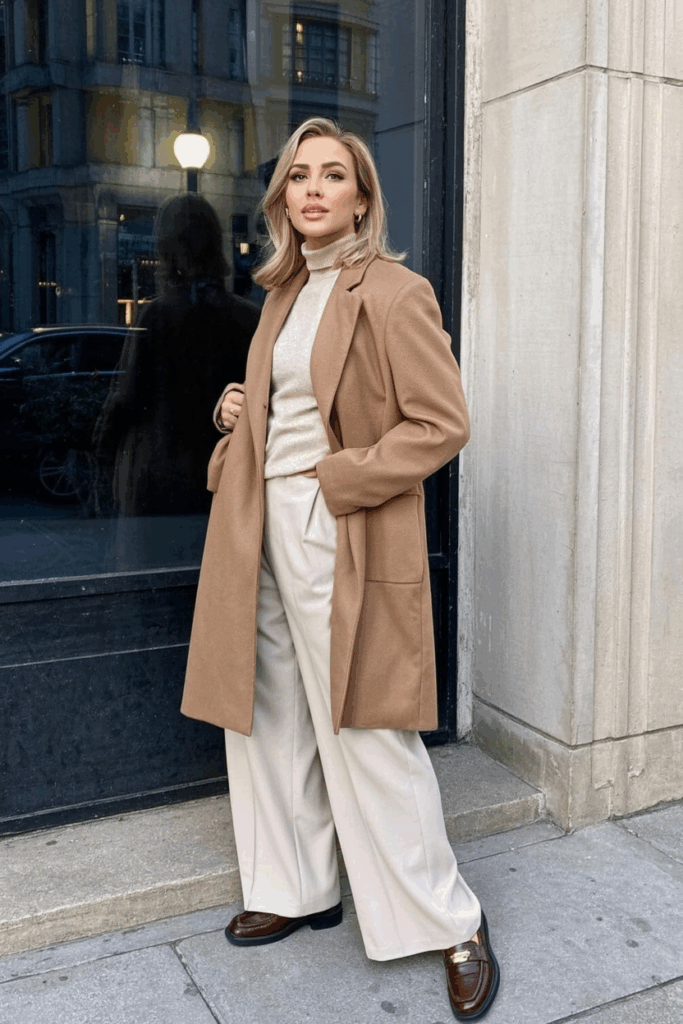
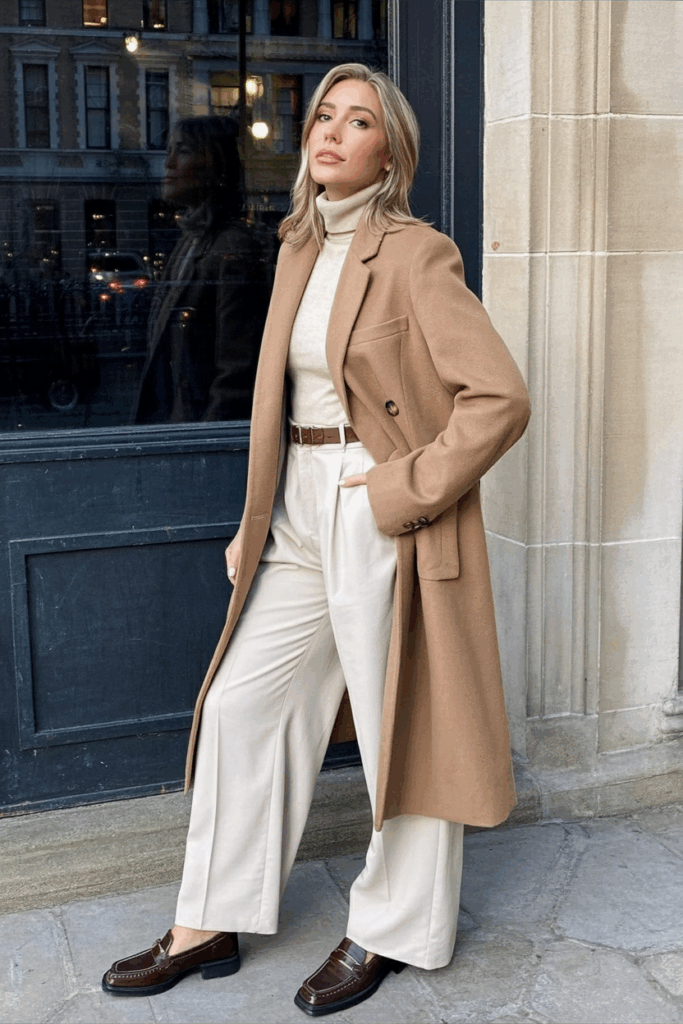
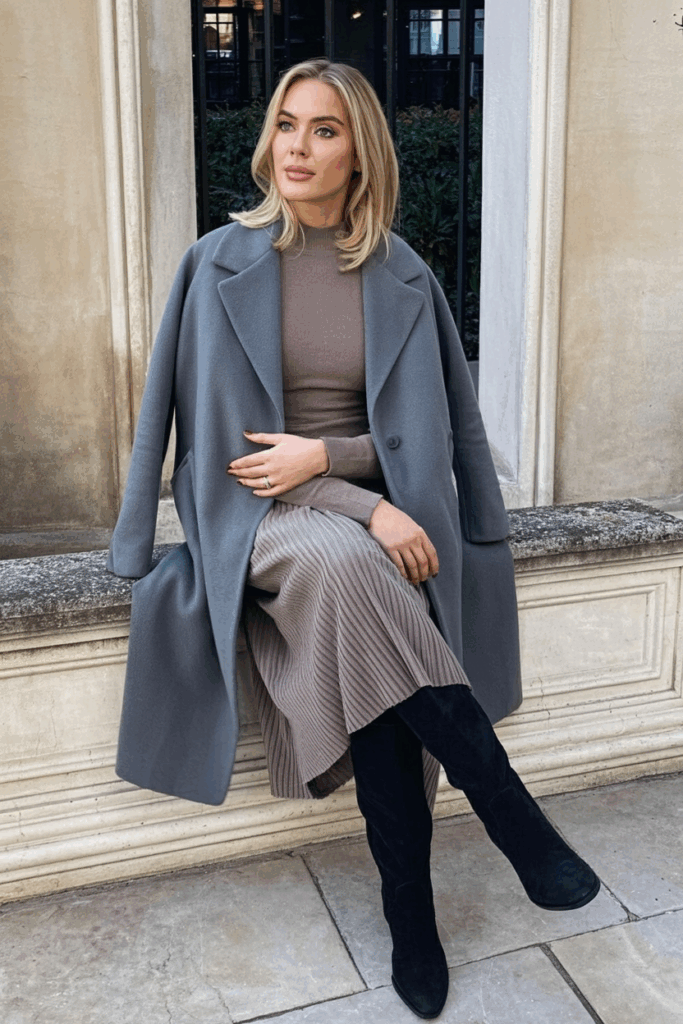
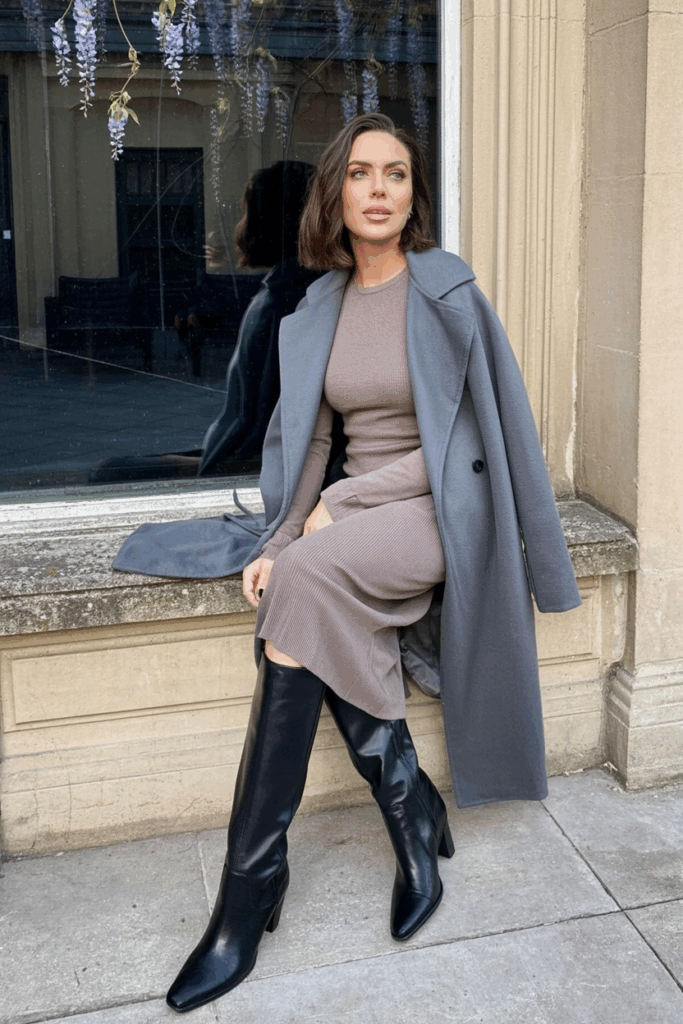
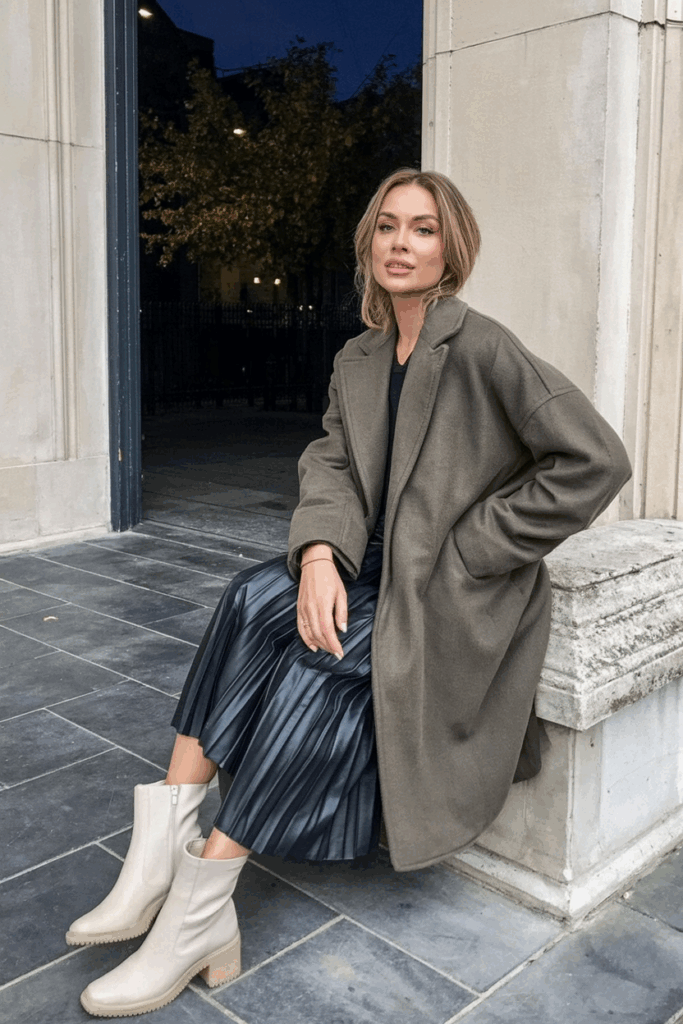
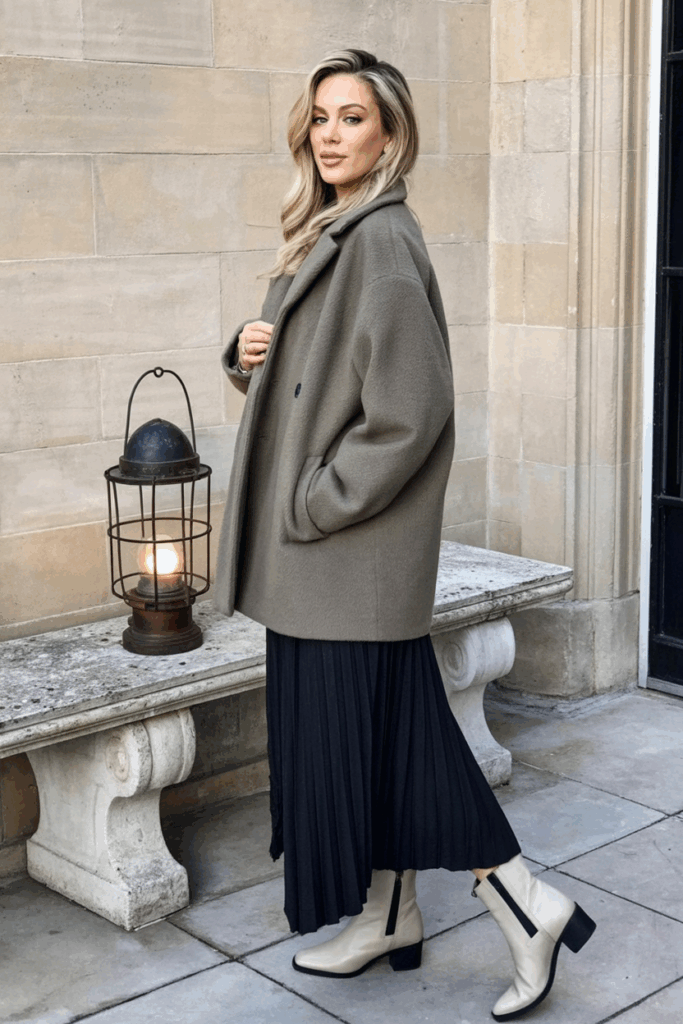
- Cotton, silk, and linen for shirts and dresses—they breathe well and drape beautifully.
- Tweed and herringbone for coats, skirts, or blazers—they bring structure and a nod to heritage styling.
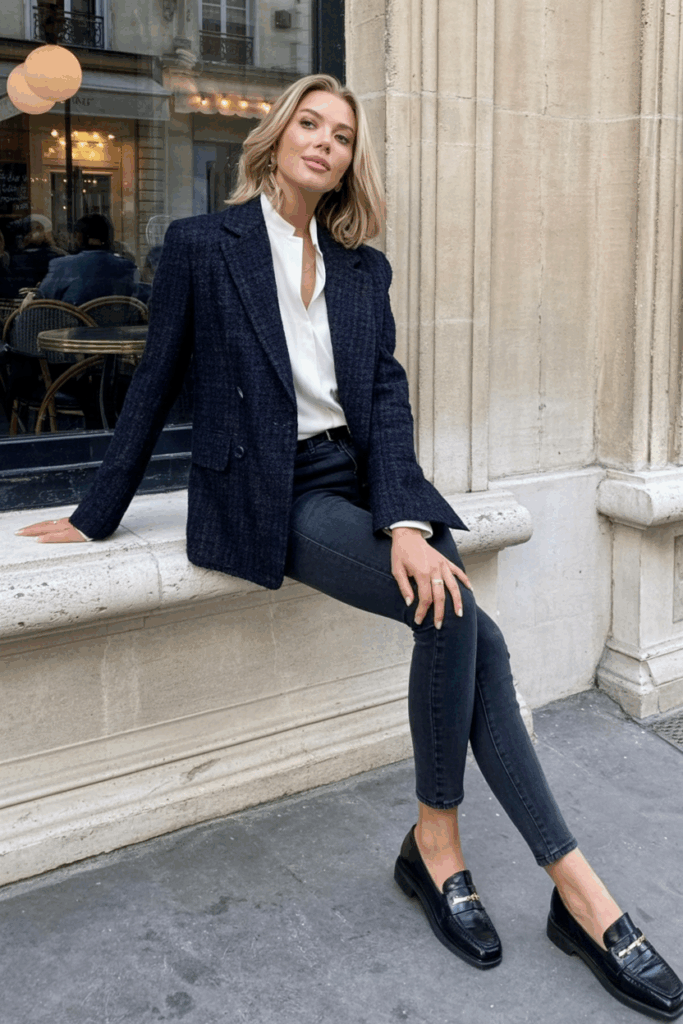
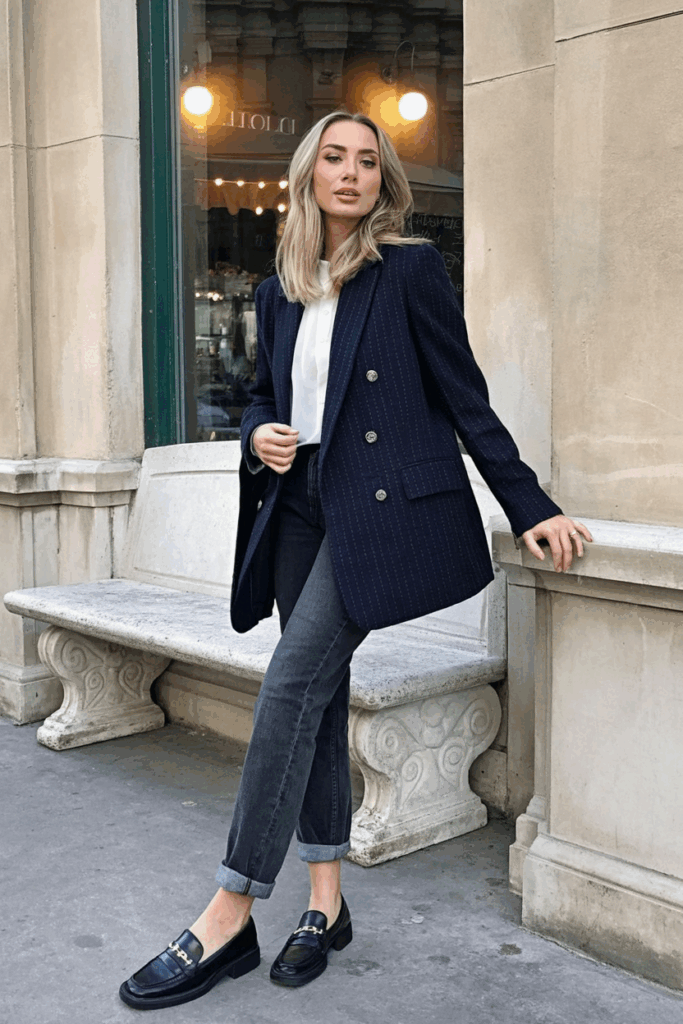
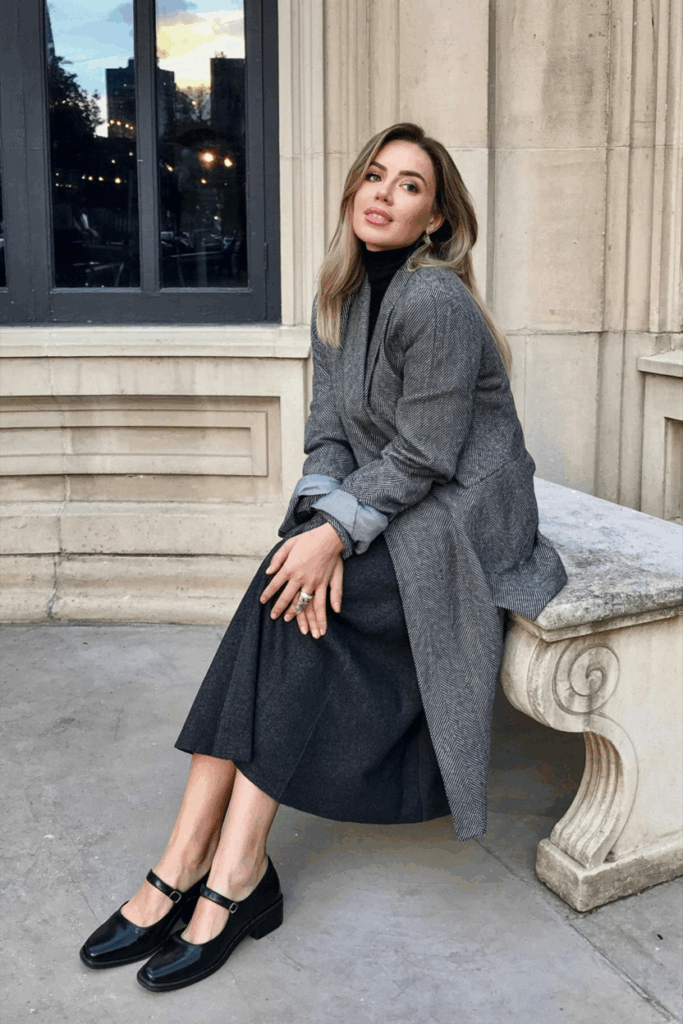
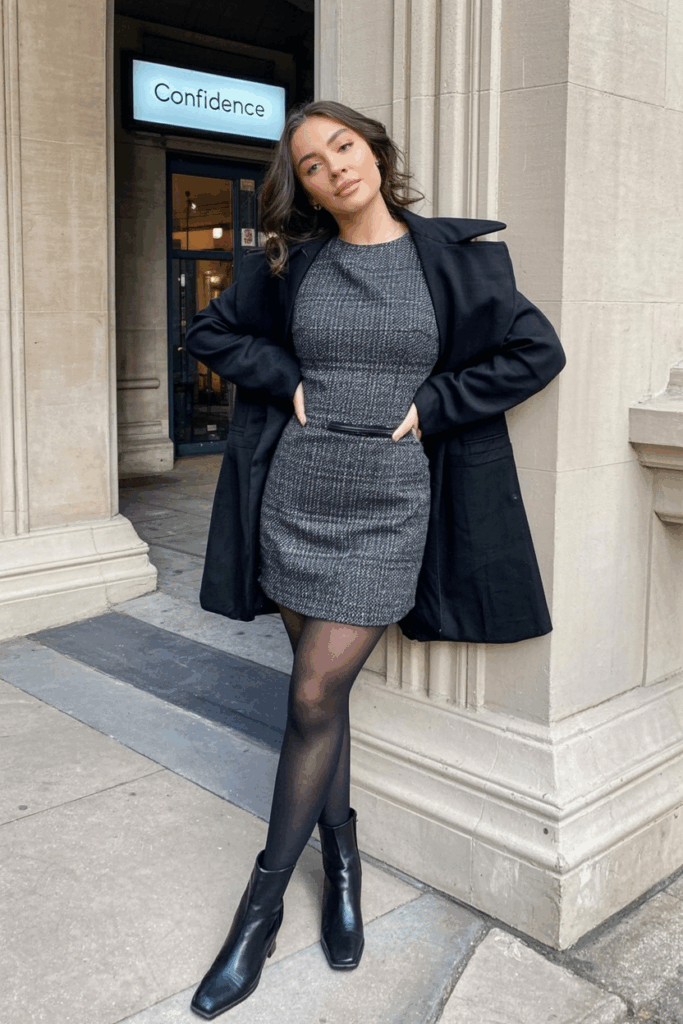
- Fine knits and jersey that offer stretch without sacrificing elegance.
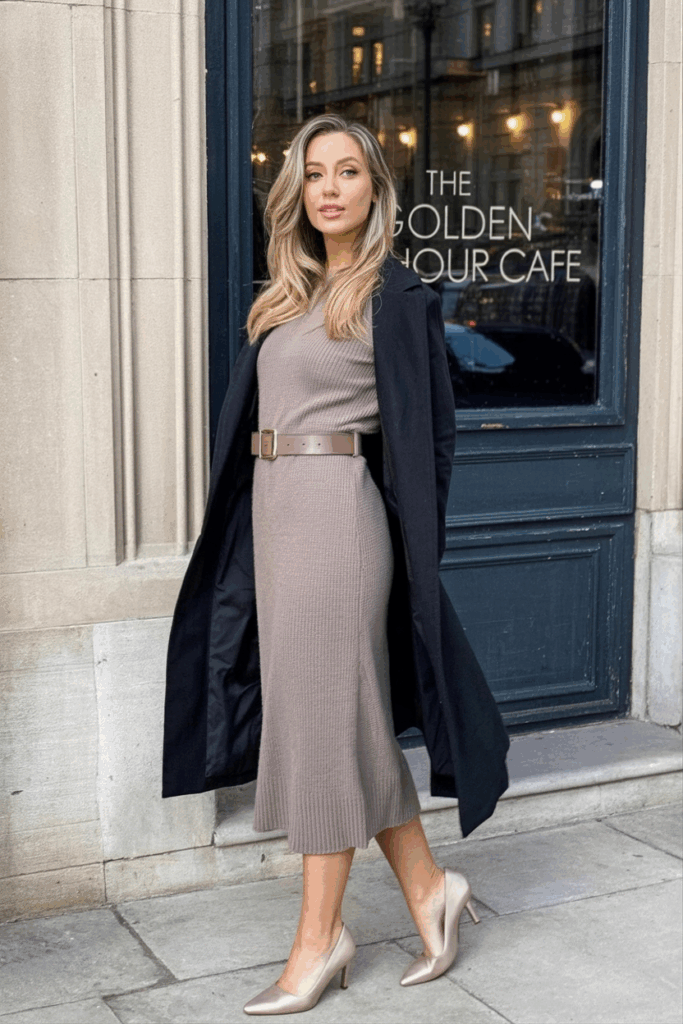
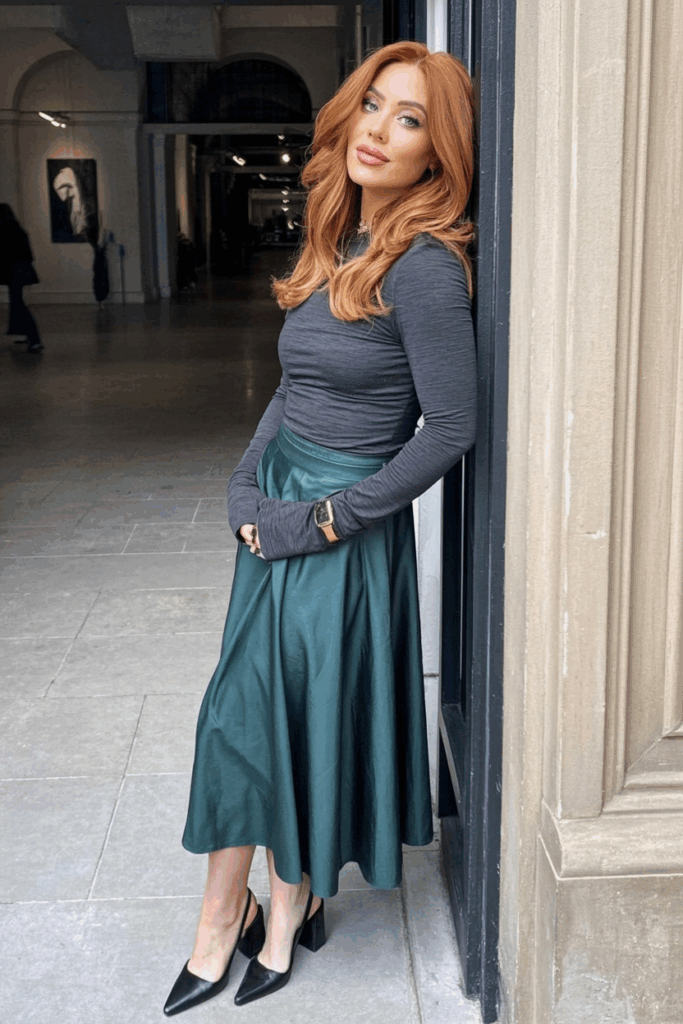
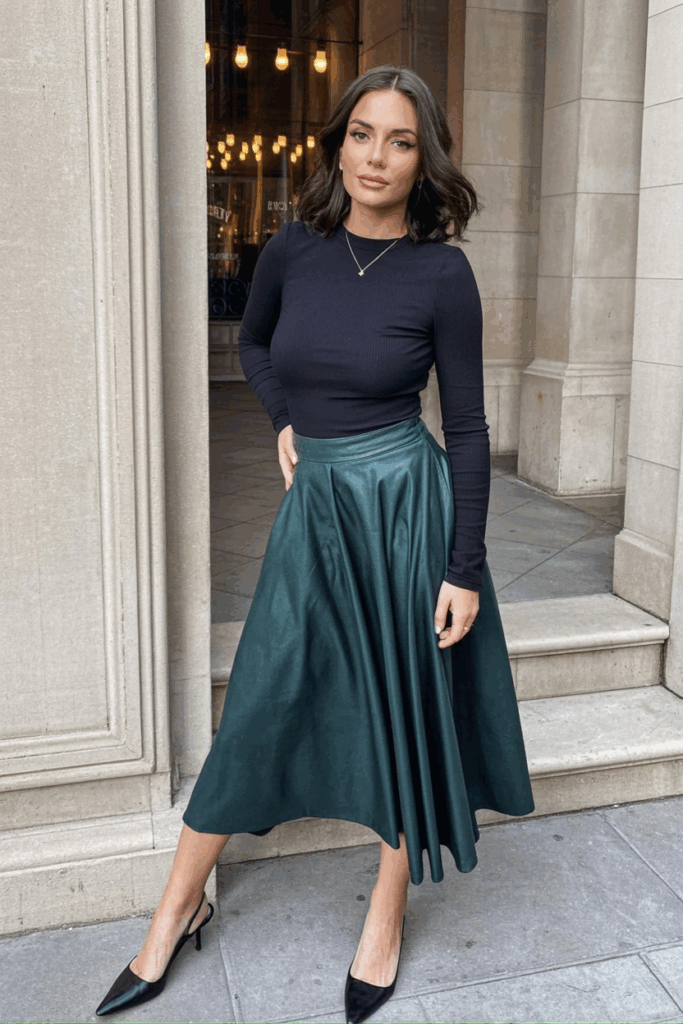
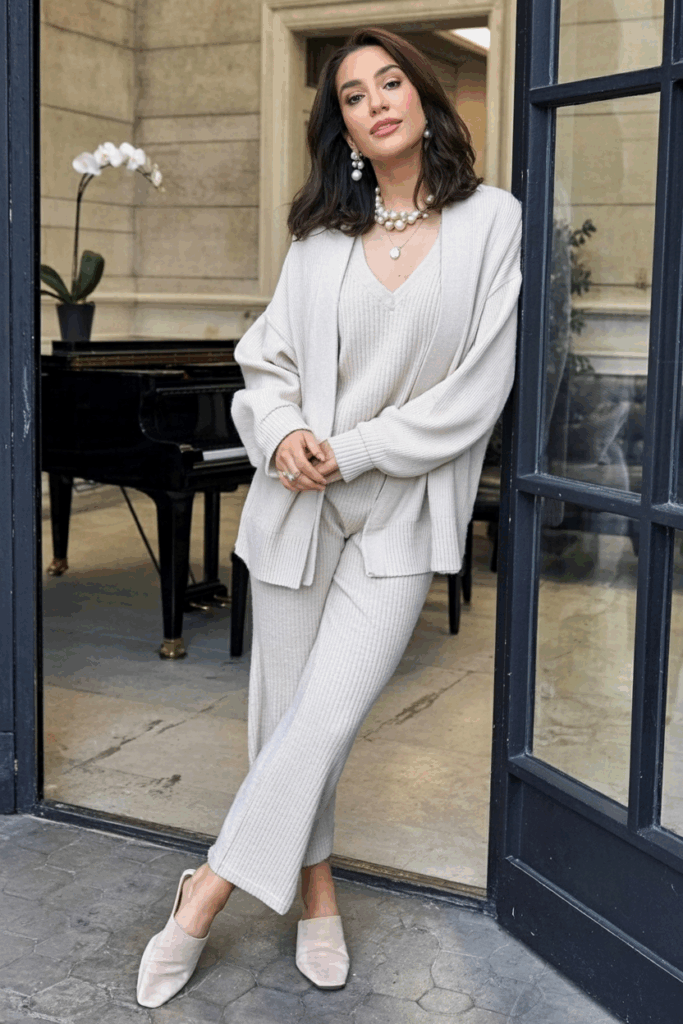
Quality fabric adds a visual and tactile richness, even in the simplest outfit. The way it moves, catches light, and wears over time makes all the difference.
4. Dresses That Carry Heritage
Old money dresses are feminine without being overly fitted or flashy. These silhouettes are designed to flatter gently, evoking a sense of history and poise.
Choose dresses like:
- Tea-length or midi styles with a soft A-line cut and modest neckline—they’re graceful and elegant without being stuffy.
- Silk shirtdresses with belted waists, offering ease and shape in equal measure.
- Minimalist slip dresses, layered under cashmere cardigans or long blazers for a modern-meets-heritage effect.
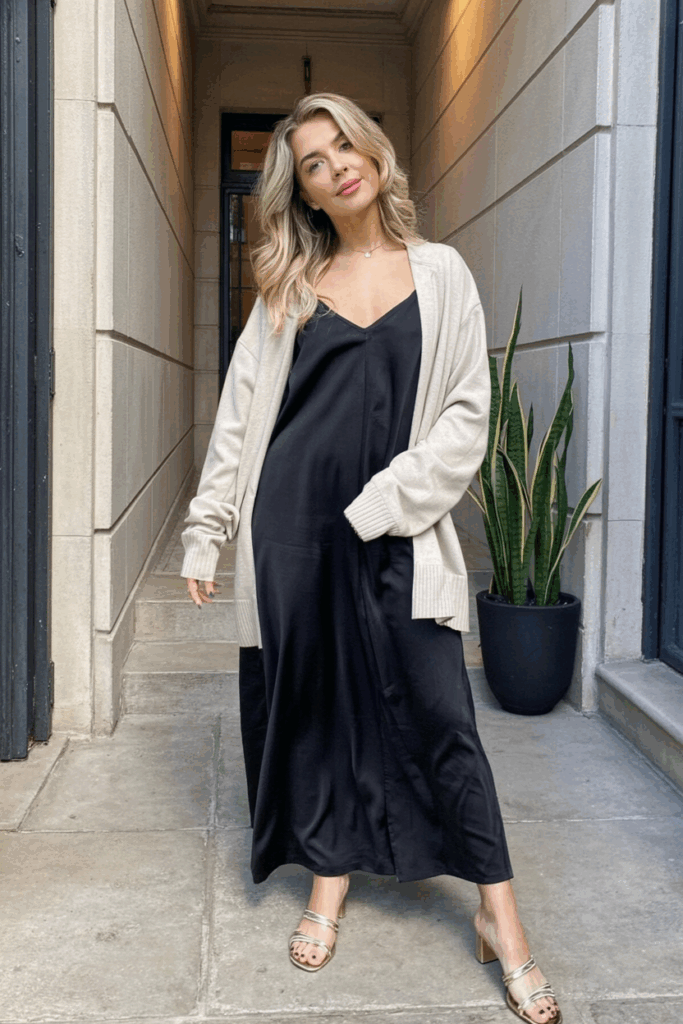
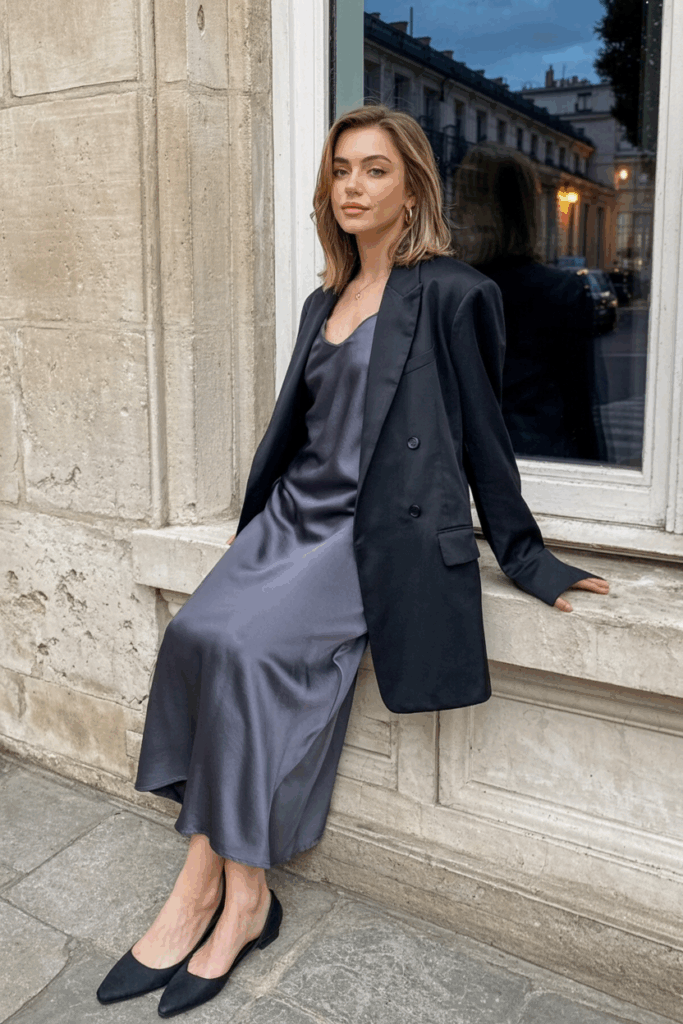
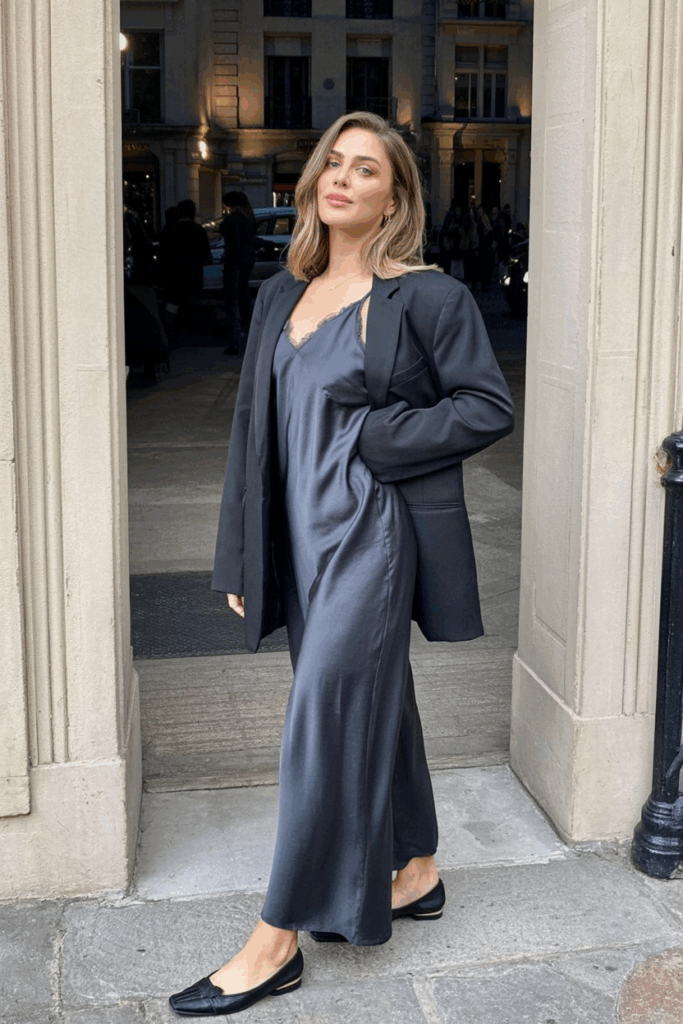
Patterns are delicate—florals are vintage-inspired, and solids are favored. These dresses are made for garden parties, weekend brunches, or gallery visits—not the spotlight.
5. Footwear That Grounds the Look
Shoes should be well-made and understated—designed to last, to support, and to quietly complete the outfit.
Go for:
- Loafers, particularly in polished leather or soft suede, which work across seasons and outfits.
- Ballet flats in cream, black, or blush—timeless and easy to wear with everything from trousers to skirts.
- Riding boots or elegant leather ankle boots in deep brown or black for colder months.
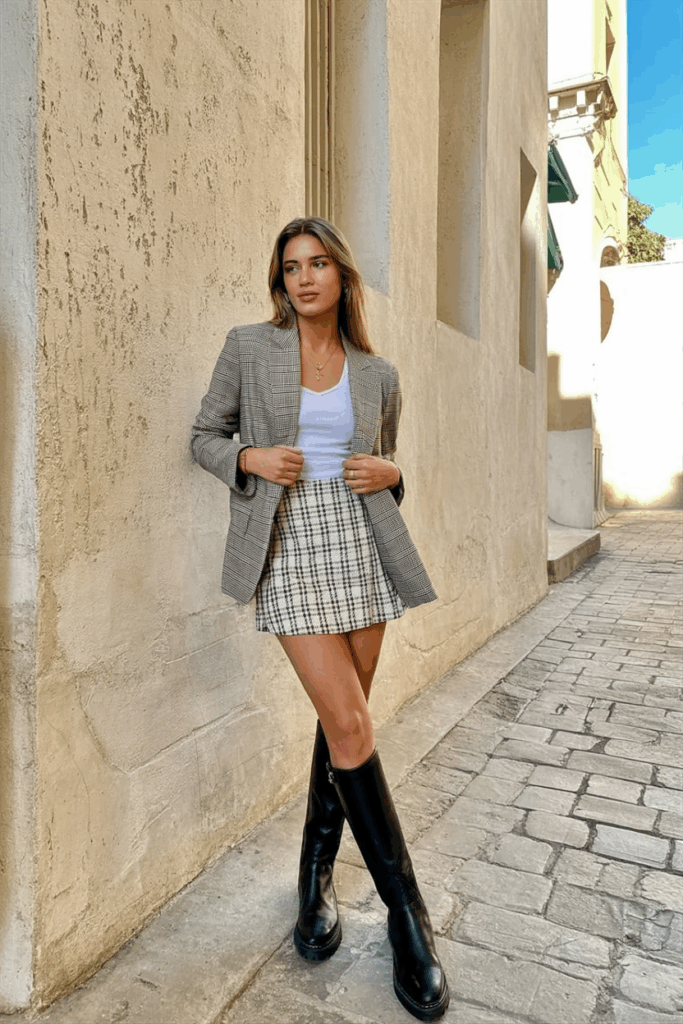
- Low block heels for formal occasions—just enough height without compromising comfort or grace.
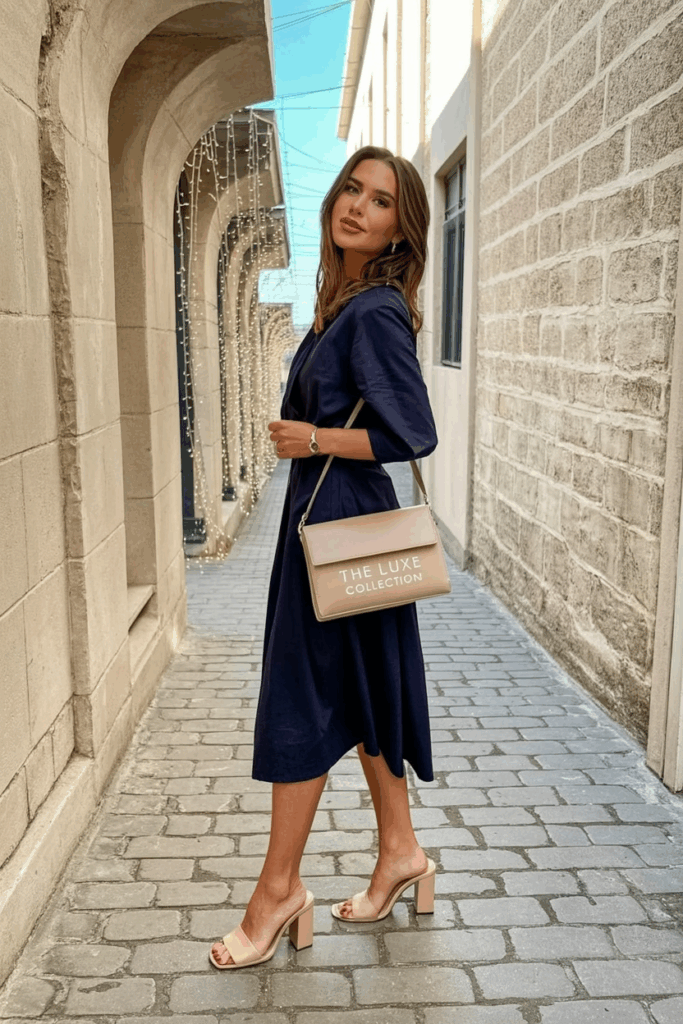
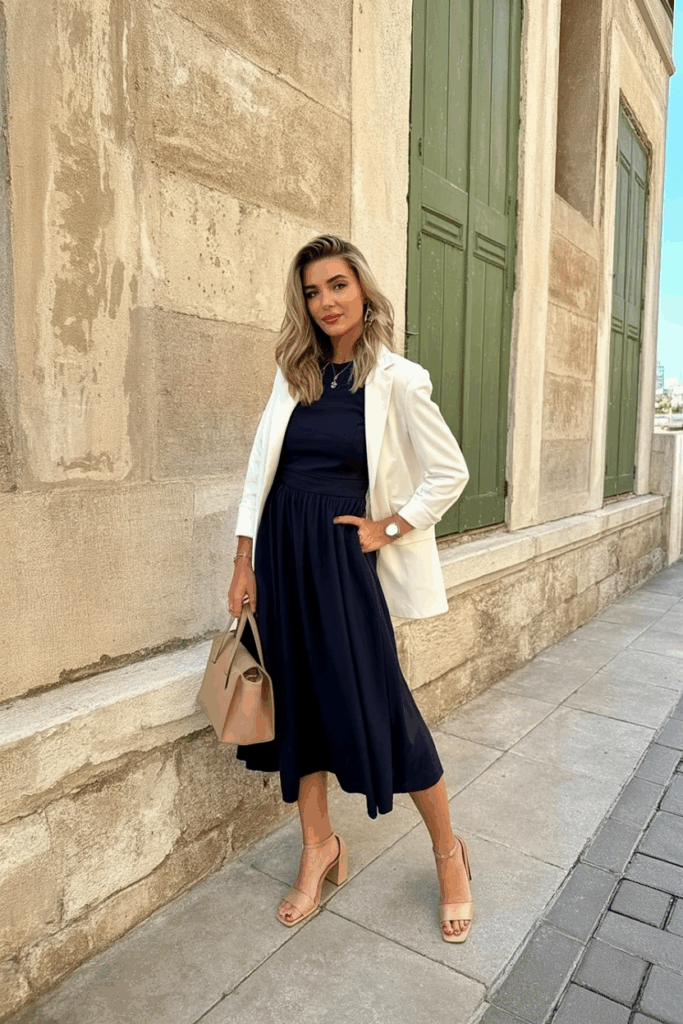
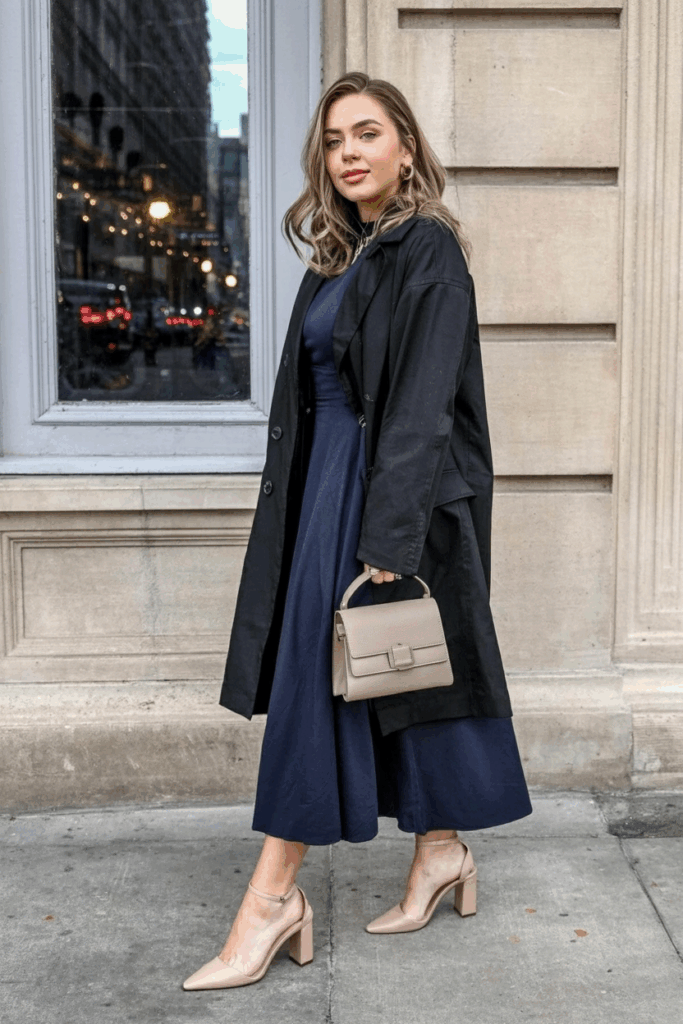
Avoid anything too chunky, overly embellished, or highly trendy. Subtlety is where the elegance lives.
6. Accessories with Heritage and Restraint
Accessories in the old money wardrobe aren’t there to make a loud statement. They are chosen for their story, subtle charm, and ability to enhance the look without overpowering it.
Opt for:
- Pearl earrings or gold hoops—classic and refined, wearable every day.
- Vintage or leather-strap watches that suggest legacy and attention to detail.
- Silk scarves, worn around the neck, draped over shoulders, or tied onto a handbag.
- Minimal leather handbags, structured with clean lines and very little hardware.
- Thin belts that bring cohesion to dresses or trousers without drawing attention.
Each piece should feel like it belongs, not like it’s trying too hard.
7. Outerwear That Finishes the Story
The right coat or jacket gives the entire look a sense of intention. These are the pieces that carry the most visual weight—structured, lasting, and tailored.
Top choices include:
- Double-breasted wool coats in classic tones like navy or camel, always tailored.
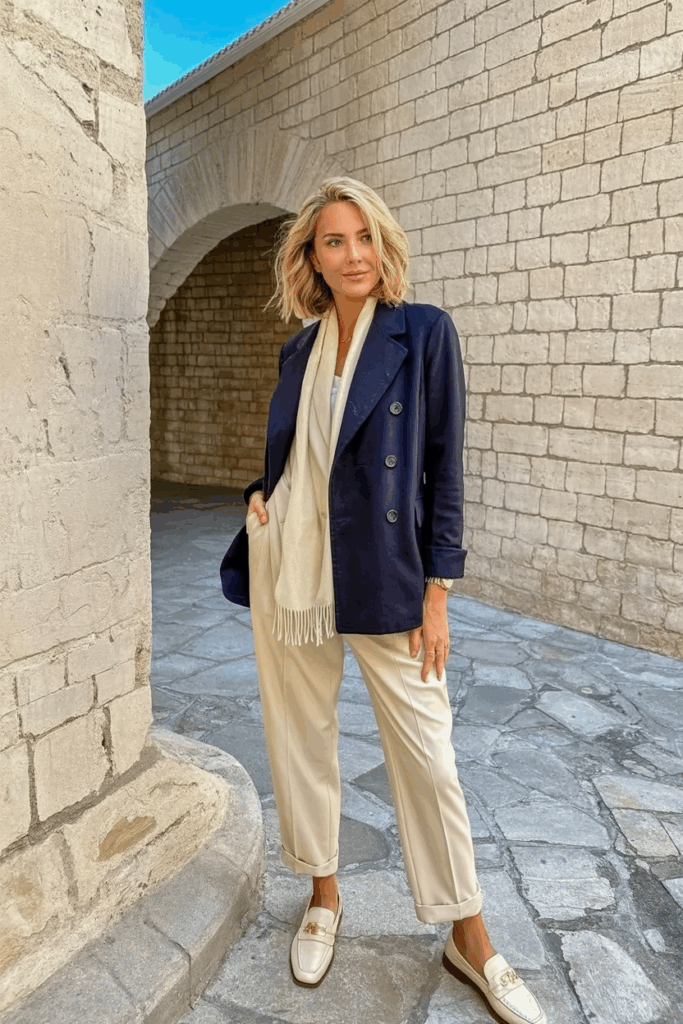
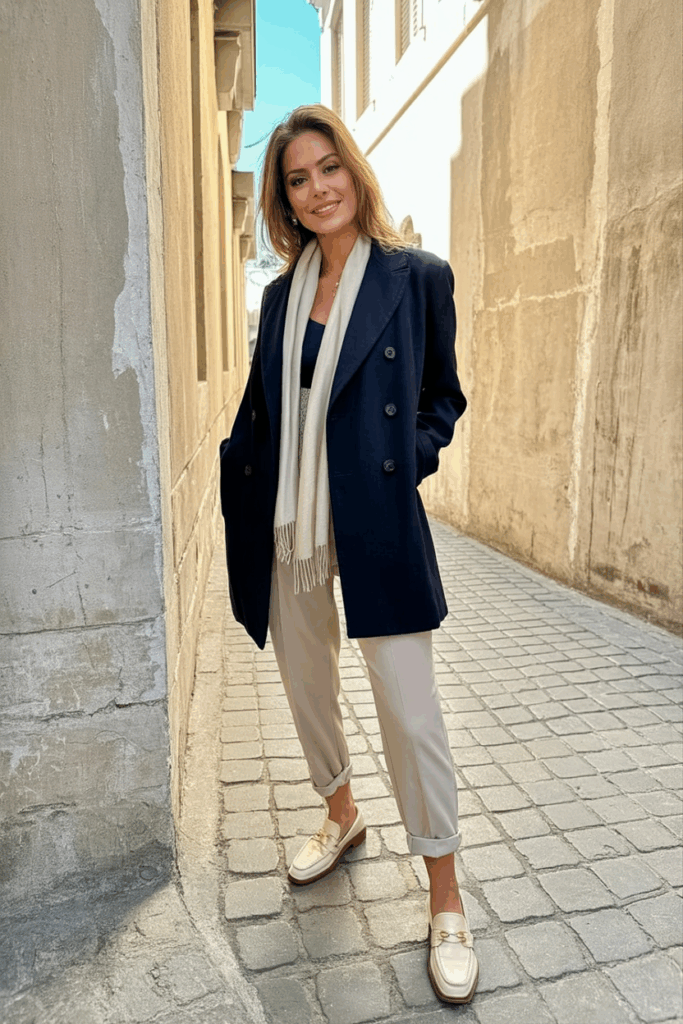
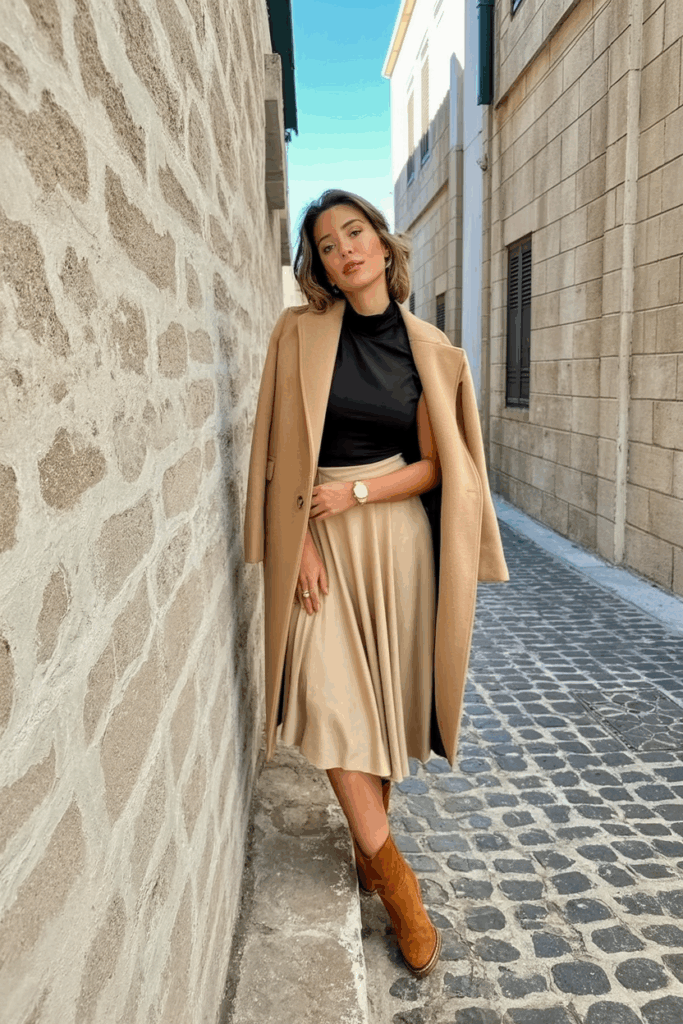
- Trench coats, especially long and belted in khaki or beige, with minimal detailing.
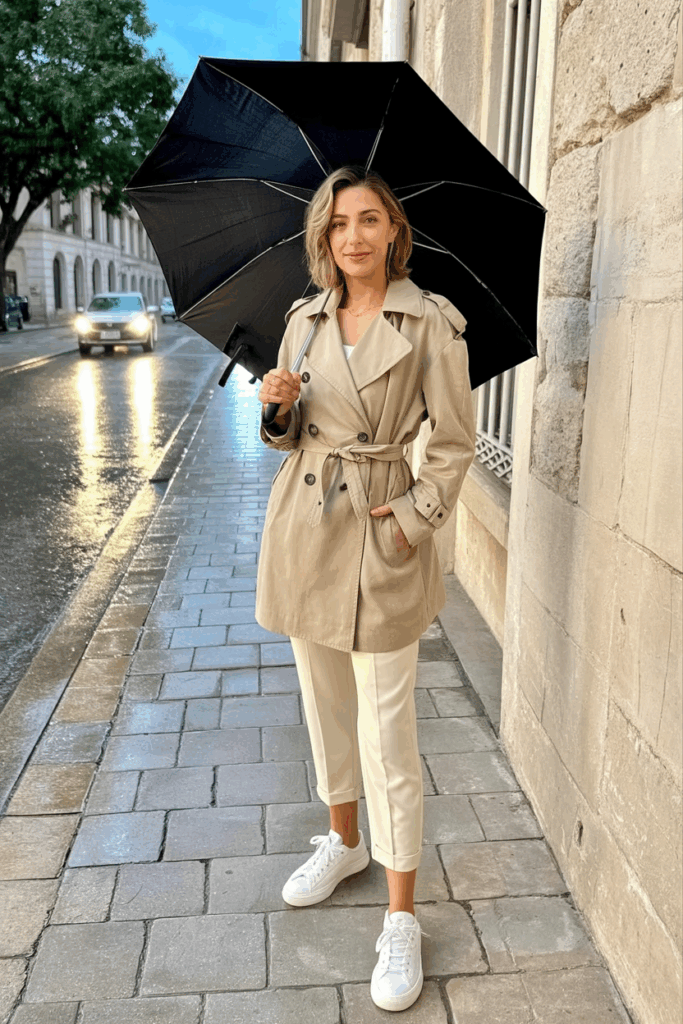
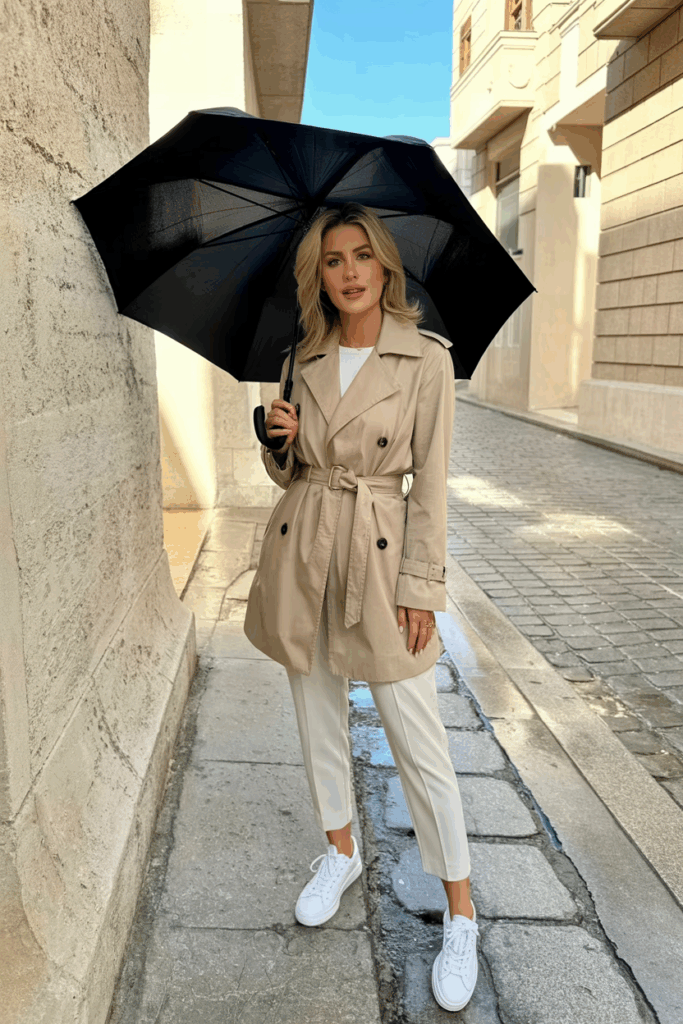
- Tweed jackets or capes for a nod to traditional British elegance.
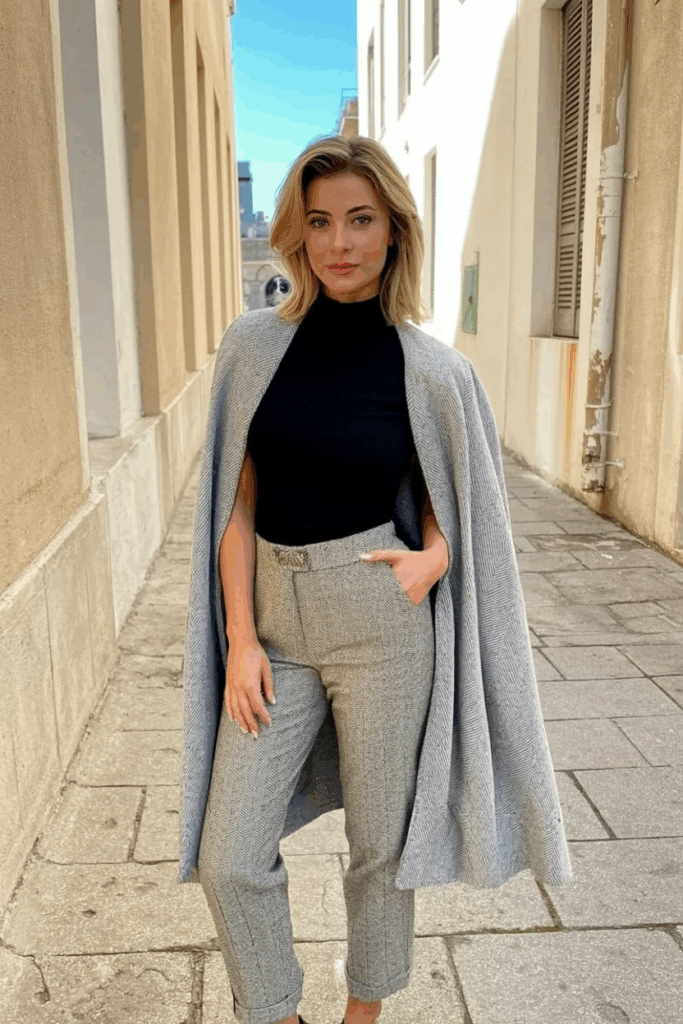
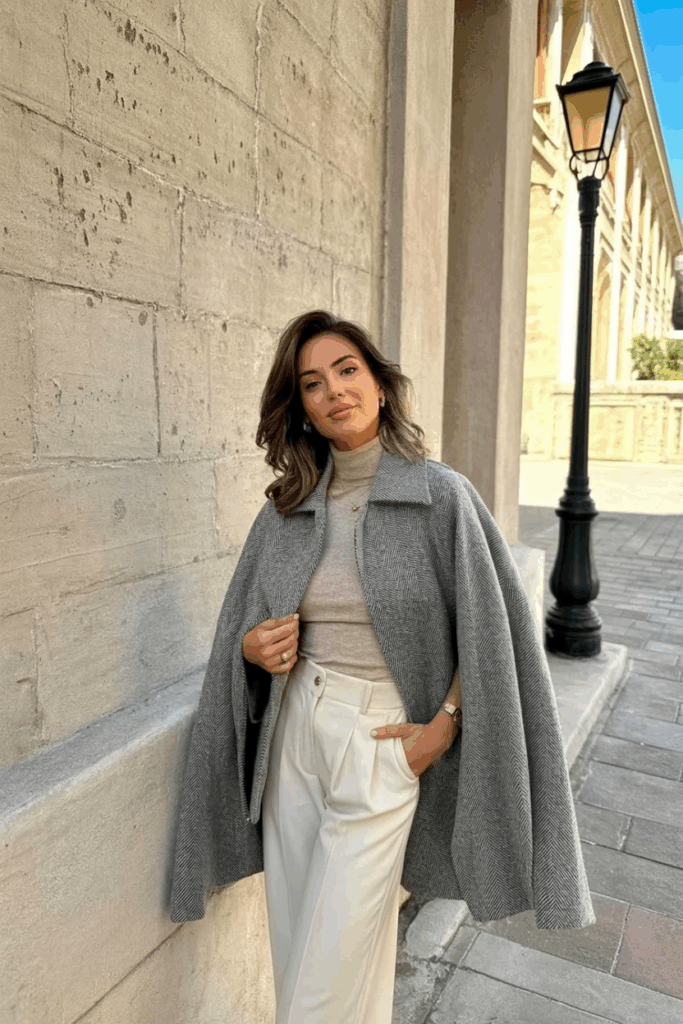
- Structured peacoats or riding coats that add form and presence to any base outfit.
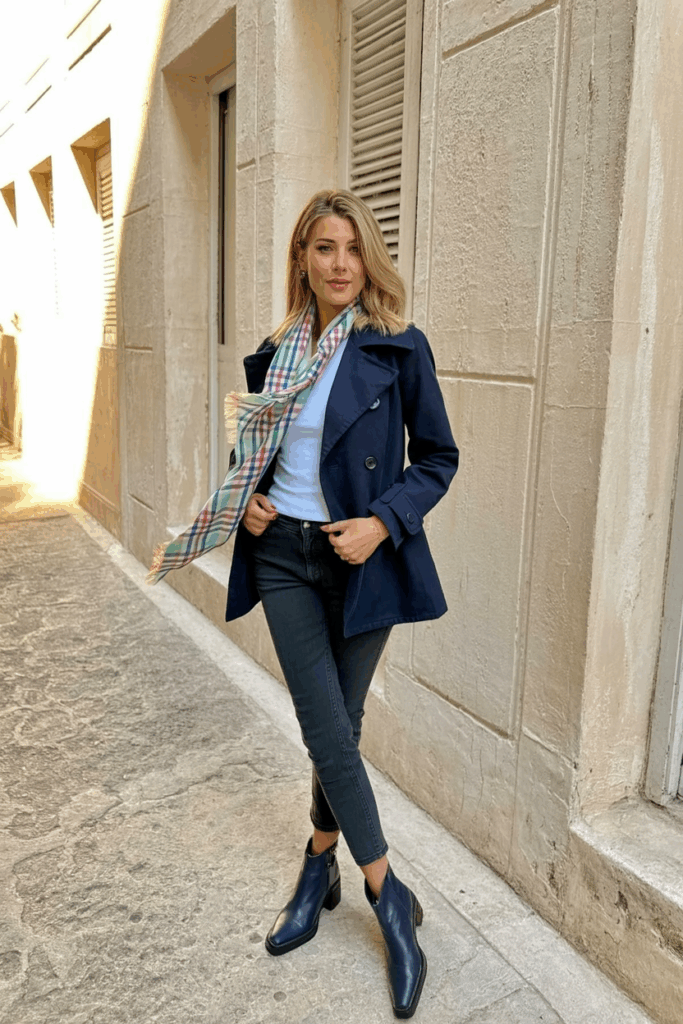
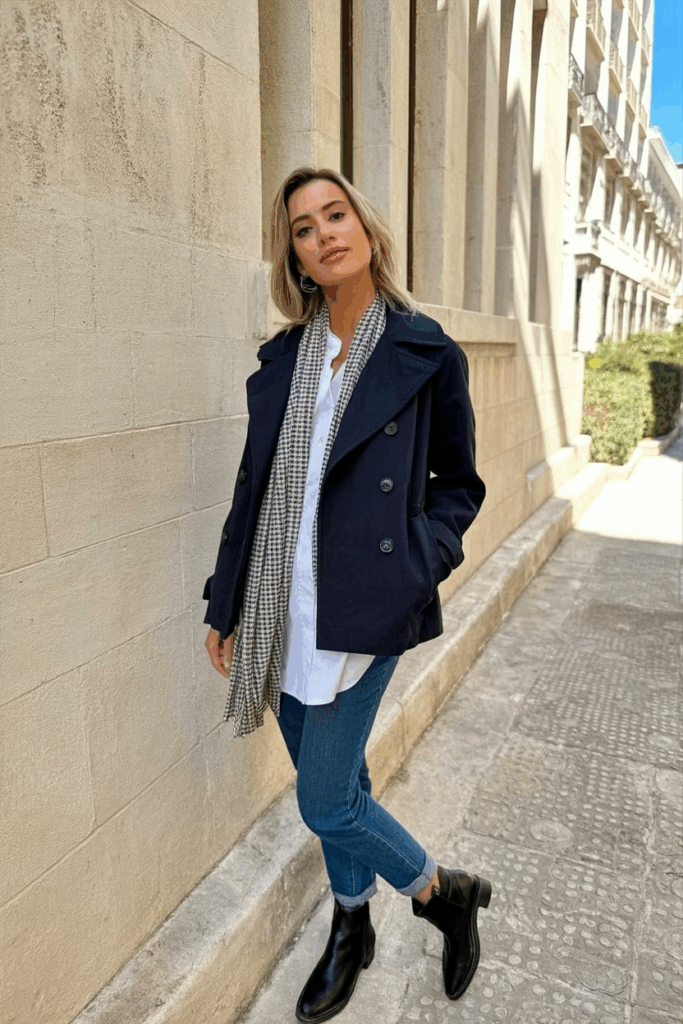
Outerwear should look like it’s been passed down—not plucked from a seasonal rack.
8. Attitude and Presence
Old money style goes beyond clothing—it’s expressed in how you move, speak, and carry yourself.
- Posture is relaxed but dignified. You don’t rush.
- Movements are graceful, eyes steady, gestures soft.
- Grooming is simple—clean skin, neat nails, a signature scent.
- Fragrance is discreet. Choose warm, powdery florals, amber, or soft citrus—something that lingers lightly.
Elegance isn’t only what you wear—it’s how you live inside what you wear.
Final Note: Legacy Over Labels
There’s a kind of power in dressing simply. In packing a little less. In choosing clothes that move with you instead of getting in your way.
That’s what I admire about the way Asian menswear is built—it’s not about looking like you’re trying. It’s about being ready for wherever you’re going next.
So this spring—travel like you mean it. Pick pieces you can rely on. Dress with intention, but don’t overthink it.
The best style doesn’t have to say much. It just shows up.
Thanks for reading. Safe travels.
